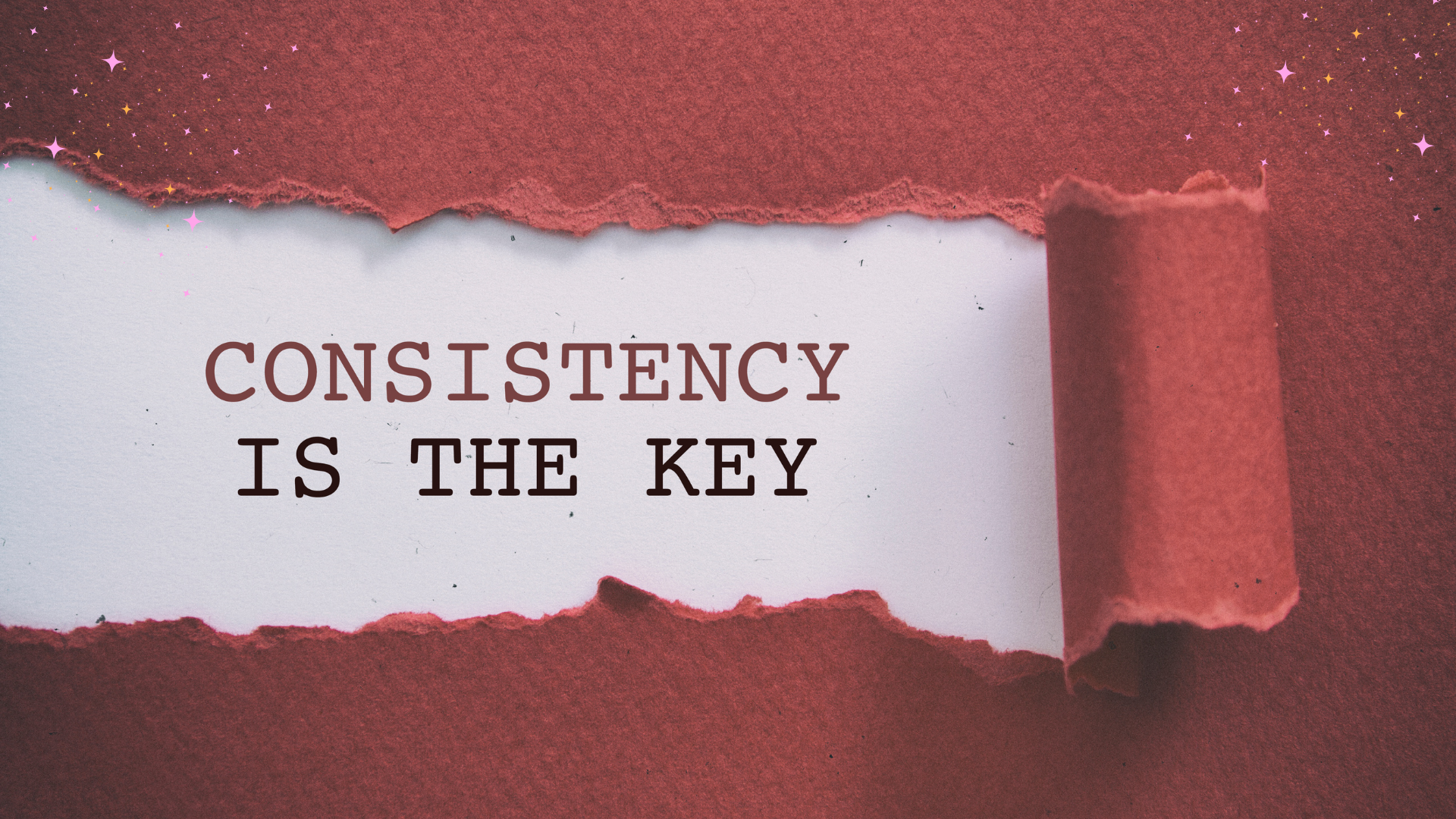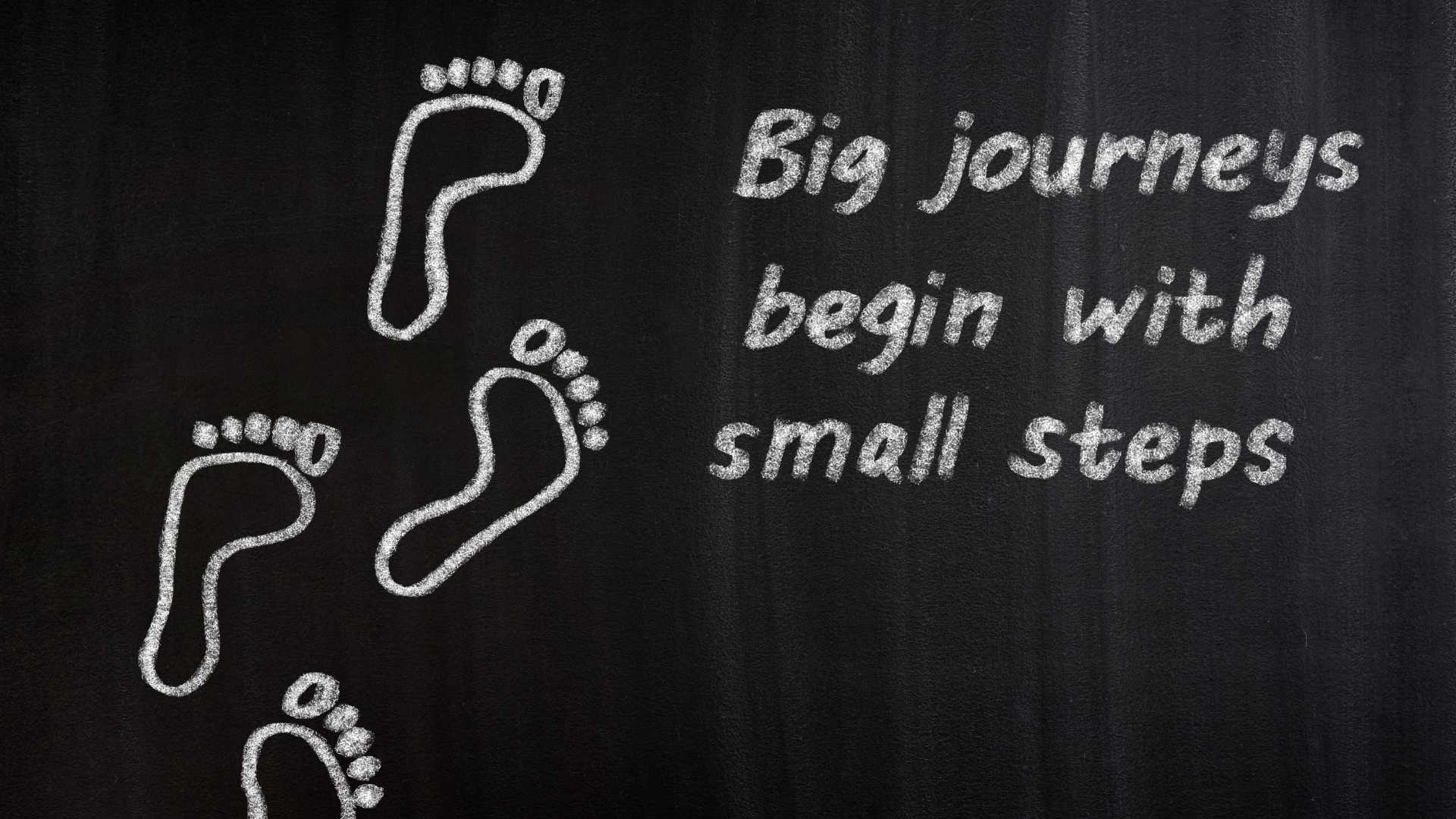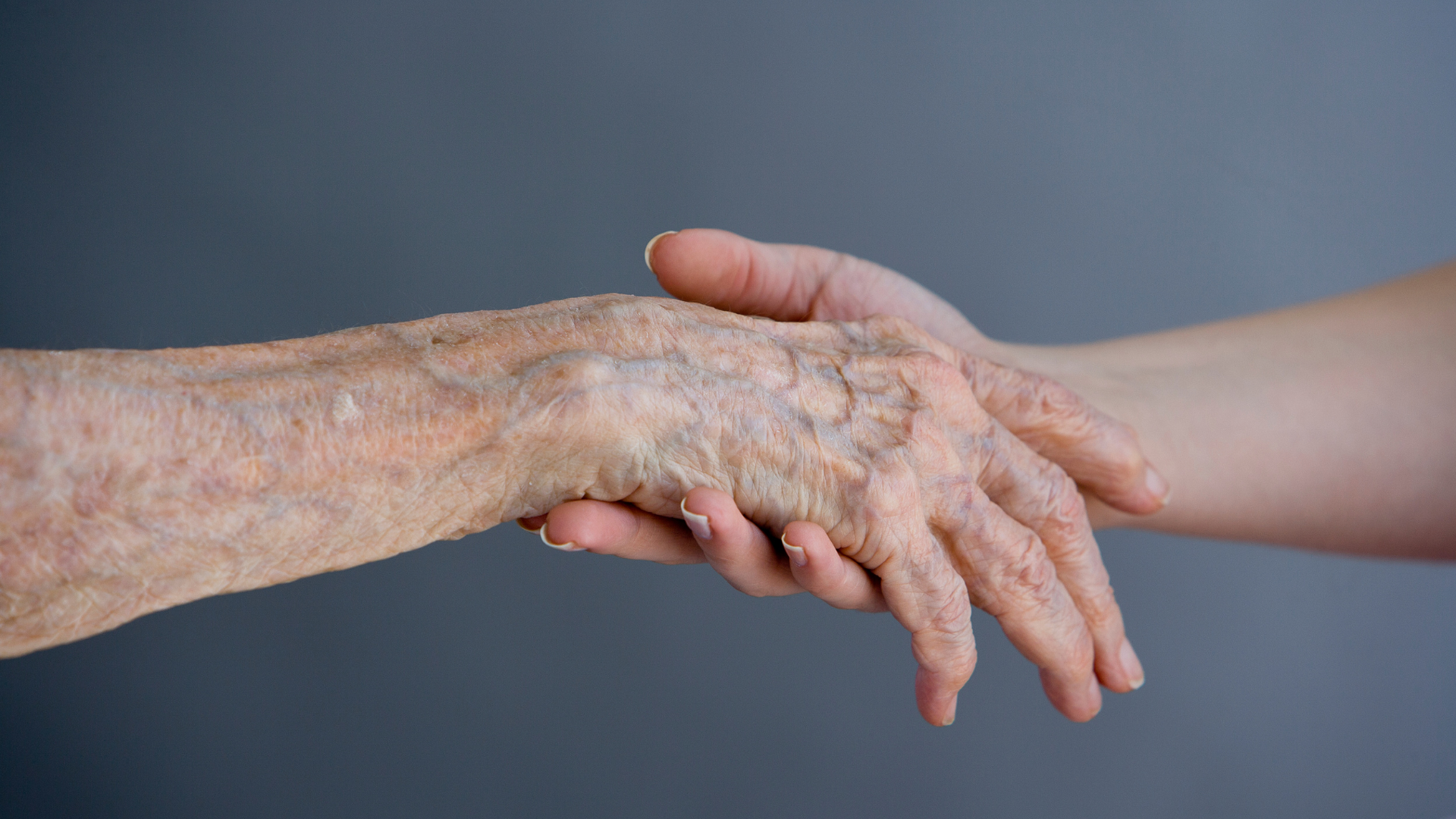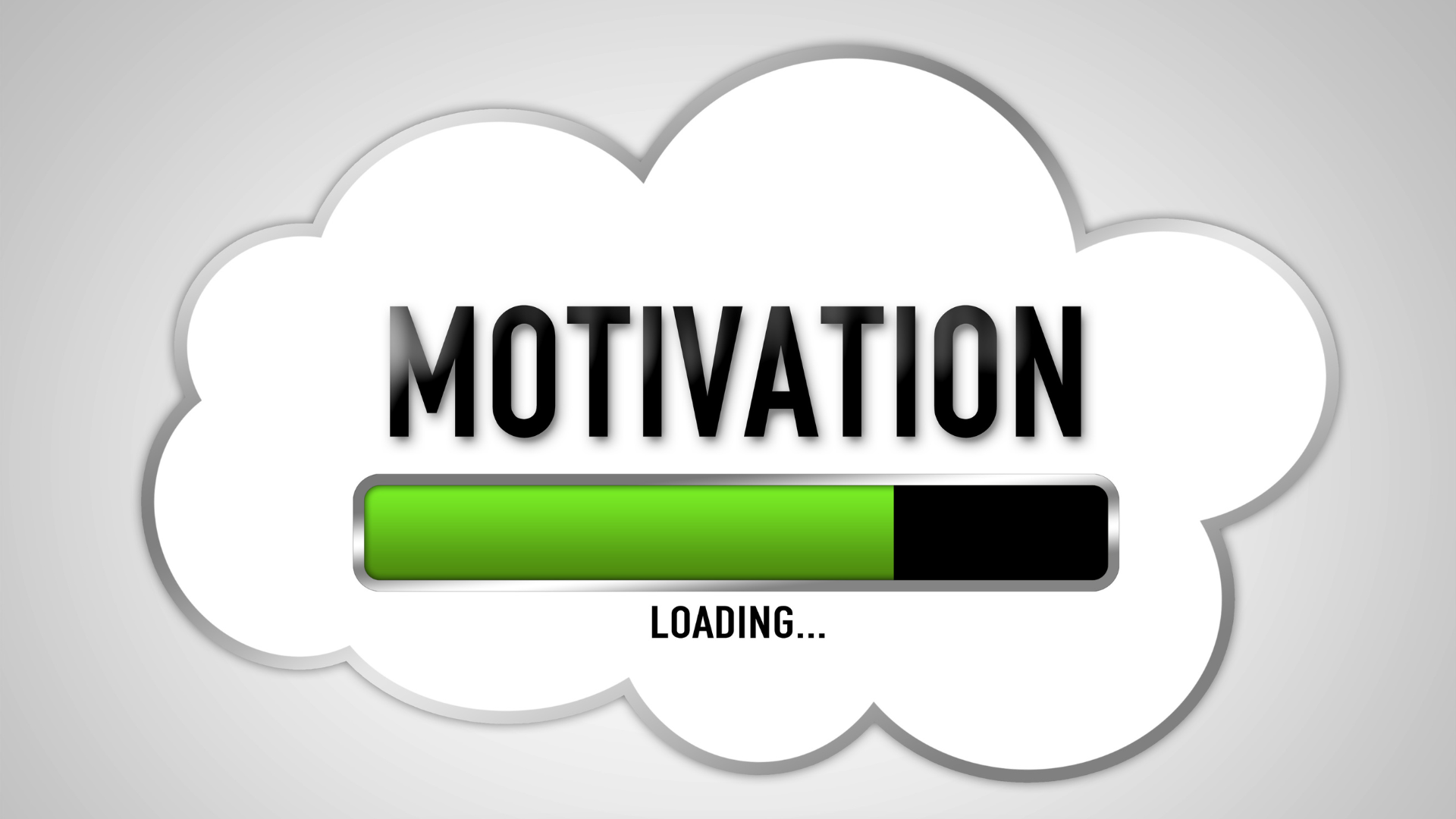
Caregiving is a hands-on career that requires strength, patience, and dedication. For Home Health Aides (HHAs) and Certified Nursing Assistants (CNAs), helping clients with mobility, lifting objects, and standing for long hours can take a toll on the body—especially the back. At Fordham Institute Inc., we believe that taking care of yourself is just as important as taking care of your clients. Practicing safe movement techniques helps prevent injuries, reduce strain, and keep you strong for the important work you do every day. 1. Bend with Your Knees, Not Your Back When lifting, squat down by bending your knees and hips—never bend forward at the waist. Keep your back straight and your core engaged as you rise. Tip: Always keep the object or person close to your body to reduce strain. 2. Use Your Legs for Power Your leg muscles are much stronger than your back muscles. Let them do the heavy work. Push through your legs when standing, lifting, or moving patients, instead of relying on your back. 3. Avoid Twisting Twisting while carrying weight puts major stress on the spine. Instead, move your feet to turn your whole body in the direction you need to go. 4. Keep Your Posture in Check Slouching while sitting or standing can slowly add up to back pain. Stand tall with shoulders relaxed. Distribute your weight evenly between both feet. When sitting, keep your feet flat on the floor and avoid hunching over. 5. Take Micro-Breaks Even short pauses help. Stretch your back, shoulders, and legs throughout your shift. A quick neck roll or standing hamstring stretch can ease tension and improve circulation. 6. Use Assistive Devices When Available If your workplace provides gait belts, slide sheets, or mechanical lifts, don’t hesitate to use them. They protect both you and your clients during transfers or repositioning. 7. Care for Your Body Outside of Work Strengthening your core, staying hydrated, and getting enough rest all contribute to better posture and fewer injuries. Simple exercises like walking or gentle yoga can support long-term back health. Protecting Yourself Means Protecting Your Career Your health is one of your greatest tools as a caregiver. By practicing safe movement every day, you’ll protect your back, extend your career, and give better care to your clients. 📞 Want to start your journey as an HHA or CNA? Call 718-480-1804 Because strong caregivers know: caring for your back is caring for your future.

Caregiving is a role filled with moving parts—appointments, medications, daily activities, and emotional support. For Home Health Aides (HHAs) and Certified Nursing Assistants (CNAs), having a reliable routine isn’t just helpful—it’s essential. At Fordham Institute Inc., we teach our students that routines create stability not only for clients but also for caregivers themselves. Consistency brings comfort, reduces stress, and helps ensure that every day runs a little smoother. 1. Routines Build Trust Clients often feel more secure when they know what to expect. Small habits like greeting them the same way each morning or serving meals at consistent times make daily life feel safe and predictable. That sense of stability helps build trust between caregiver and client. 2. Consistency Helps You Stay Organized When you follow a set routine—checking supplies, preparing meals, or tracking medications—you reduce the risk of forgetting important steps. For caregivers balancing multiple tasks, routines are a built-in safety net. 3. Routines Reduce Stress A predictable schedule takes away the guesswork. Instead of scrambling to decide what to do next, you move smoothly from one task to another. This lowers stress for you and creates a calmer environment for your client. 4. Healthy Habits Stick Easier Consistency doesn’t just benefit your clients—it benefits you. Building habits like drinking water regularly, stretching at the start of your shift, or journaling at the end of the day becomes second nature when you add them into your daily routine. 5. Flexibility Still Fits In While routines are powerful, no two days in caregiving are ever exactly alike. Being consistent with core tasks gives you room to adapt when unexpected challenges come up. A strong routine provides structure, but your caregiving skills give it flexibility. Routine = Confidence + Care When your day flows with consistency, you feel more confident, and your clients feel more cared for. It’s a win-win that strengthens your role as a professional and makes life easier for everyone. 📞 Interested in building a caregiving career that makes a difference? Call 718-480-1804 Because in caregiving, consistency is more than routine—it’s a powerful form of care.

In healthcare, technical skills are essential—but they’re only part of what makes a great caregiver. Employers and patients alike value soft skills—the personal qualities that shape how you interact, communicate, and work with others. At Fordham Institute Inc., we prepare our Home Health Aide (HHA) and Certified Nursing Assistant (CNA) students to not only meet technical requirements but also develop the professionalism that sets them apart in the workplace. 1. Communication Skills Clear, respectful communication with patients, families, and coworkers is essential. Listen actively to what others say Speak clearly when explaining tasks or care instructions Use a friendly, respectful tone Strong communication helps build trust and prevents misunderstandings. 2. Empathy and Compassion Caregiving isn’t just about physical care—it’s about emotional support. Understand what patients may be feeling Show patience during difficult moments Offer comfort with your words and actions A kind approach can make a world of difference in someone’s day. 3. Reliability Being dependable shows respect for your role and the people who count on you. Arrive on time Follow through on tasks Keep your word Healthcare teams and patients rely on consistency. 4. Time Management With multiple tasks to handle in a shift, good time management keeps care efficient and stress levels low. Prioritize urgent needs first Stay organized with checklists Avoid rushing by planning ahead 5. Adaptability Things change quickly in healthcare—patients’ needs, schedules, or care plans can shift unexpectedly. Being able to adapt shows professionalism and resilience. 6. Positive Attitude A smile, friendly greeting, and encouraging words can brighten a patient’s day and lift the spirits of your team. Positivity is contagious—and powerful. Why Soft Skills Matter Employers know that technical skills can be taught, but strong soft skills take practice and dedication. They’re what make you not just a capable caregiver, but an outstanding one. 📞 Ready to train for a career that makes a difference? Call 718-480-1804

Whether you’re a Home Health Aide (HHA) or a Certified Nursing Assistant (CNA), your workdays can be physically demanding, mentally engaging, and emotionally intense. Long shifts are part of the job—but feeling drained doesn’t have to be. At Fordham Institute Inc., we know that keeping your energy up is essential, not only for your own well-being but also for the quality of care you provide. Here are practical tips to help you power through long days without hitting burnout. 1. Start with a Strong Foundation Energy starts before your shift begins. Make sure you’re getting enough sleep, eating a balanced breakfast, and hydrating in the morning. Skipping these basics is like starting the day on an empty tank. 2. Keep Healthy Snacks Handy Avoid the crash that comes from sugary or processed snacks. Instead, pack energy-boosting options like: Almonds or mixed nuts Fresh fruit Whole grain crackers with cheese Hummus with carrot sticks Small, balanced snacks every 3–4 hours can help you stay alert without the sugar slump. 3. Stay Hydrated All Day Dehydration can cause fatigue, headaches, and difficulty concentrating. Keep a reusable water bottle nearby and sip throughout your shift. Adding lemon or cucumber can make it more refreshing. 4. Move and Stretch Regularly If your job keeps you on your feet, find moments to stretch your back, legs, and shoulders. If you’re seated for long periods, stand up and move around for a minute or two every hour. These small breaks keep your blood flowing and your muscles from stiffening. 5. Take Mindful Breaks Even short mental resets can make a big difference. When you have a moment, step outside for fresh air, practice a deep breathing exercise, or simply sit quietly to regroup. 6. Protect Your Emotional Energy Caregiving can be emotionally demanding. Keep a healthy boundary between your work and personal life. After a challenging moment, remind yourself you are doing your best and it’s okay to take time to recharge. 7. Wind Down the Right Way After a long shift, allow yourself a transition period before jumping into home responsibilities. Light stretching, a shower, or calming music can help you recover and prepare for the next day. Your Energy Is Part of Your Care When you take care of your energy, you’re also taking care of your patients and clients. It’s not just about getting through the day—it’s about feeling strong and capable throughout it. 📞 Interested in joining our HHA or CNA training programs? Call 718-480-1804

In healthcare, the way you start your day can shape everything that follows. For Home Health Aides (HHAs) and Certified Nursing Assistants (CNAs), mornings aren’t just about getting ready—they’re about preparing your mind, body, and energy for the important work ahead. At Fordham Institute Inc., we believe that a strong start leads to a stronger day. Here are a few morning habits that can help caregivers feel focused, energized, and ready to give their best. 1. Wake Up with Purpose Instead of rushing out of bed, take a moment to set your intention for the day. Ask yourself: “What kind of caregiver do I want to be today?” A few deep breaths or a short affirmation—like “I am prepared, capable, and compassionate”—can set a positive tone. 2. Fuel Your Body Right Skipping breakfast can leave you feeling tired and distracted. Choose something quick but nourishing, like: Whole grain toast with peanut butter Oatmeal with fruit Yogurt with nuts or seeds Balanced meals early in the day help maintain energy levels for the work ahead. 3. Move Your Body Even 5–10 minutes of light stretching or walking in place can improve circulation, loosen stiff muscles, and boost alertness. For caregivers who spend long hours on their feet, this small step can make a big difference in how the body feels by the end of the shift. 4. Organize Your Day Check your schedule, gather your essentials, and make sure your work bag is packed. Having everything ready reduces stress and helps you feel in control before your day even begins. 5. Hydrate Early Start your day with a glass of water. Proper hydration supports focus, mood, and energy—three things every caregiver needs. 6. Take a Moment for Yourself Before heading out, do something small that brings you joy—listening to your favorite song, stepping outside for fresh air, or reading a quick inspirational quote. It’s a reminder that your well-being matters, too. Your Morning Shapes Your Mindset A solid morning routine doesn’t have to be complicated. The key is consistency. By taking care of yourself first thing in the morning, you’ll be more prepared—physically and mentally—to take care of others. 📞 Ready to start your career in healthcare? Call 718-480-1804

When starting your journey as a Home Health Aide (HHA) or Certified Nursing Assistant (CNA), it’s easy to focus on the big picture—finishing the program, passing the exam, and starting your first job. But here’s a secret: it’s the small wins along the way that really shape your success. At Fordham Institute Inc., we remind our students that every step forward counts, even if it feels small. Building skills, confidence, and good habits takes time—and celebrating those moments makes the journey less stressful and more rewarding. Why Small Wins Matter They build momentum – Each success boosts your confidence to tackle the next challenge. They keep you motivated – Seeing progress, even in small ways, helps you stay committed. They reduce burnout – Celebrating progress reminds you that you are moving forward. They create lasting habits – Consistency in small steps builds the foundation for bigger achievements. Examples of Small Wins in Training Understanding a skill you once struggled with Finishing your homework early Getting positive feedback from an instructor Showing up to class on time for a whole week Mastering a new term or concept without looking at your notes These wins may seem small in the moment—but they add up to your overall success. How to Recognize and Celebrate Your Wins Keep a Progress Journal – Write down one thing you achieved each day. Share with a Friend or Classmate – Talking about your progress can make it feel more real. Treat Yourself – A favorite snack, a relaxing activity, or a bit of extra rest can be a reward. Look Back Often – Remember where you started, and see how far you’ve come. Progress Over Perfection In healthcare training—and in life—perfection is impossible. What matters most is showing up, learning, and improving over time. The best HHAs and CNAs aren’t perfect—they’re consistent, compassionate, and committed. Your Journey Is Worth Celebrating Whether you’ve taken one step or a hundred, you are building a future filled with purpose and opportunity. At Fordham Institute Inc., we’re here to help you grow, one win at a time. 📞 Ready to take the first step toward a rewarding career? Call 718-480-1804 Small wins lead to big changes—and your journey starts with just one.

Being a Home Health Aide (HHA) or Certified Nursing Assistant (CNA) means more than just checking vitals or helping with daily tasks—it also means being present during some of life’s most vulnerable moments. Whether you're working in a facility or someone’s home, caregiving can touch your heart in unexpected ways. At Fordham Institute Inc., we know that while caregiving is rewarding, it can also be emotionally demanding. Some days are joyful; others are heavy. And that’s okay. Here’s how to care for your emotional well-being—so you can keep showing up strong, balanced, and grounded. 1. Acknowledge What You Feel You might feel overwhelmed, frustrated, or even sad after a long shift. That’s normal. The emotional work you do is real—and it's okay to feel it. Bottling it up doesn’t make you stronger. Honoring your feelings does. 2. Create Space to Unwind After work, give yourself a few minutes to reset: Sit in silence Take a walk Play calming music Write in a journal You don’t have to “fix” how you feel—just give yourself room to breathe and let go. 3. Find Someone Safe to Talk To Whether it’s a friend, a fellow caregiver, or a mentor, talking about your experience can be incredibly healing. Even a short conversation can lift a huge weight off your chest. You’re not alone in this work—and you don’t have to carry it all on your own. 4. Set Emotional Boundaries As much as you care, it’s important to protect your emotional space. Remind yourself: You’re doing your best You can care without becoming overwhelmed It’s okay to take breaks to recharge Boundaries are not barriers—they're bridges to long-term wellness. 5. Fill Your Cup Outside of Work Make time for things that bring you joy: Reading Music Creative hobbies Spiritual practice or meditation Rest! You spend so much time giving to others—make sure you're giving to you, too. Caregivers Need Care, Too The emotional side of caregiving is real—but so is your strength. You’ve chosen a career that touches lives every day, and that means your heart is one of your greatest tools. Don’t forget to nurture it. 📞 Interested in becoming a caregiver or continuing your training? Call 718-480-1804 You show up for others—now it’s time to show up for yourself, too. Because strong caregivers know that emotional care is part of the job, starting with their own .

Training to become a Home Health Aide (HHA) or Certified Nursing Assistant (CNA) is an exciting step toward a meaningful career—but let’s be honest, it’s not always easy. Between balancing class, studying, personal responsibilities, and maybe even a job on the side, motivation can sometimes start to fade. At Fordham Institute Inc., we’ve seen how determination and small changes in routine can help students stay focused and push through even the most challenging weeks of training. If you’re in the middle of a tough stretch, here are a few ways to reset, refocus, and move forward. 1. Remember Your “Why” Before you enrolled, something inspired you to begin this journey. Maybe it was a dream of helping others, finding a stable job, or building a better future for your family. Keep that reason close. Write it down. Say it out loud. Remind yourself: “This is worth it.” 2. Set Mini Goals Instead of thinking about the entire program at once, break it down into manageable pieces. Try: Completing one chapter this week Showing up to class on time every day Practicing one new skill until you feel confident Each mini goal gets you one step closer to the finish line. 3. Build a Study Routine That Works for You Even 15–30 minutes of review a day can make a big difference. Choose a time when your mind is clear—maybe in the morning, after dinner, or on your lunch break—and stick to it. Bonus Tip: Review your notes in small chunks instead of cramming the night before an exam. 4. Ask for Help When You Need It Feeling stuck? You’re not alone. Whether it’s a classmate, instructor, or a support system outside of school, reach out when you’re struggling. Questions are part of learning—and asking them shows strength, not weakness. 5. Take Care of Your Body and Mind When you’re drained, it’s hard to focus. Stay fueled with simple, healthy meals, get enough rest when you can, and take quick breaks to breathe or stretch during the day. Caring for others starts with caring for yourself. 6. Visualize Your Future Picture yourself in your scrubs, starting your first job, helping a patient with compassion and skill. That vision is real—and it’s waiting for you. Don’t let a tough week stop you from reaching it. Keep Going—You’re Closer Than You Think Every CNA and HHA once stood where you are—uncertain, tired, but hopeful. The effort you're putting in today is building the foundation of a stronger, more confident future. 📞 Need support or want to learn more about joining a class? Call 718-480-1804 Tough weeks don’t last—but the strength you gain from them will. You've got this.

Whether you're heading into a long shift at a nursing home or making home visits as a caregiver, being prepared makes all the difference. As a Home Health Aide (HHA) or Certified Nursing Assistant (CNA), having the right items in your bag can keep your day running smoothly, save you time, and help you stay comfortable and professional. At Fordham Institute Inc., we don’t just prepare our students with knowledge—we also encourage real-life readiness. Here’s a helpful guide to what every caregiver should carry in their work bag. ✅ Everyday Work Bag Essentials 1. Notebook & Pen You never know when you’ll need to jot down reminders, schedules, or client notes. A small notepad is simple but powerful. 2. Reusable Water Bottle Staying hydrated is key, especially during long shifts. Keep a spill-proof bottle with you and refill when you can. 3. Healthy Snacks Pack portable snacks like granola bars, almonds, or fruit to fuel you during breaks or in between visits. 4. Hand Sanitizer & Lotion Caregivers wash their hands constantly—hand sanitizer keeps you clean, and a small lotion bottle helps protect your skin from dryness . 5. Lip Balm & Tissues These small comforts make a big difference during seasonal weather changes or long hours in air-conditioned buildings. Comfort & Backup Items 6. Extra Pair of Socks If your feet ever get wet or tired, fresh socks can make your shift feel brand new. 7. Travel-Size First Aid Kit A few band-aids, pain relievers, or blister pads can save your day. 8. Comfortable Shoes (or Insoles) Some caregivers keep an extra pair of slip-resistant shoes or gel insoles in their bag or car. Work-Related Tools (Only carry work tools or equipment if your employer approves and it’s part of your responsibilities.) 9. Work ID & Any Required Paperwork Always carry your ID badge, CPR card (if needed), or a small folder with copies of credentials in case you’re asked to show them. 10. Watch With a Second Hand Especially helpful for CNAs taking pulse or respiration rates. 🧘 Mental Wellness Add-Ons (Optional, but Helpful!) 11. Small Journal or Uplifting Notes Keep a few encouraging quotes or notes to lift your mood when things get tough. 12. Phone Charger or Power Bank You don’t want to lose access to maps, calls, or emergency contacts mid-shift. Stay Ready, Stay Confident The more prepared you feel, the more confident and professional you’ll be. Over time, you’ll learn what you personally need most in your bag—and your routine will become second nature . 📞 Want to start your journey as a CNA or HHA? Call 718-480-1804 A well-packed bag is one of the best tools a caregiver can have. Prepare well—and you’ll perform even better.

Being a caregiver often means your schedule is packed—whether you’re in the middle of training, working long shifts, or juggling life at home. As a Home Health Aide (HHA) or Certified Nursing Assistant (CNA), it’s easy to skip meals or grab something unhealthy on the go. But the truth is, what you eat plays a big role in your energy, mood, and focus—especially when your job is physically and emotionally demanding. At Fordham Institute Inc., we know your time is valuable. That’s why we’re sharing easy, affordable meal prep tips to help you stay fueled without the stress. Why Meal Prep Works for Caregivers Saves time during busy work weeks Keeps you nourished , even when you're on the go Reduces stress about what to eat each day Helps you stick to a budget and avoid takeout costs Meal Prep Basics: Start Simple You don’t need to prep fancy recipes. Just focus on balanced meals with: A protein (like eggs, chicken, beans) A veggie or fruit A healthy carb (like rice, sweet potato, or oats) Prep 2–3 meals ahead of time, and store them in containers so they’re grab-and-go ready. Quick Meal Ideas for the Week Protein Power Bowls Brown rice + grilled chicken + steamed broccoli Add a drizzle of olive oil or light dressing 🥪 Healthy Wraps Whole wheat tortilla + tuna or turkey + spinach Add shredded carrots or cucumbers for crunch 🍳 Egg Muffins Whisk eggs + chopped veggies + cheese Pour into muffin tins and bake. Store in fridge and reheat. 🥣 Overnight Oats Oats + almond milk + banana slices + cinnamon Let sit overnight in a jar for a ready-made breakfast 🥜 Snack Packs Prep small containers with almonds, fruit, hard-boiled eggs, or hummus with carrots Easy to grab during short breaks Time-Saving Tips Cook in batches (make enough for 2–3 days at a time) Use frozen veggies—they’re just as nutritious Choose one day (like Sunday) to plan and prep meals Use a crockpot for slow-cooked meals while you’re doing other things Eating Well = Caring Well Taking care of others starts with taking care of yourself. A little prep goes a long way toward keeping your energy up and your body strong. Whether you’re training to become a caregiver or already working shifts, your well-being matters. 📞 Ready to train for a rewarding career in he althcare? Call 718-480-1804

Caregiving takes strength—not just emotionally, but physically too. Whether you're assisting with mobility, standing for long periods, or moving equipment, your body is constantly working. As a Home Health Aide (HHA) or Certified Nursing Assistant (CNA), taking care of your own physical health is just as important as caring for your clients. At Fordham Institute Inc., we encourage our students and graduates to build wellness into their routines. One of the simplest and most effective ways? Stretching. Even a few minutes a day can ease tension, prevent soreness, and help you feel refreshed for your next shift. Why Stretching Matters for Caregivers Reduces muscle fatigue and soreness Improves posture (especially important if you're on your feet all day) Increases flexibility and mobility Helps prevent workplace injuries Gives you a mental reset and stress relief You don’t need a gym or fancy equipment—just a quiet space and a few minutes. Easy Stretches to Try After Work (Always listen to your body. If something hurts, ease up or stop.) 1. Neck & Shoulder Roll Release tension from looking down or carrying items. Gently roll your shoulders backward 5 times, then forward. Drop your chin to your chest and slowly roll your head side to side. 2. Upper Back Stretch Perfect after long hours of standing. Clasp your hands in front of you, round your shoulders, and push forward. Feel the stretch between your shoulder blades. Hold for 20 seconds. 3. Standing Hamstring Stretch Eases tightness in the legs. Place one foot forward with the heel on the ground, toes up. Lean slightly forward from the hips (not your back) until you feel the stretch. Switch sides. 4. Calf Stretch Helps if you’ve been walking or lifting all day. Stand facing a wall. Step one foot back, heel flat on the floor. Bend the front knee and press into the wall until you feel a stretch in the back leg. 5. Foot Roll (Bonus Tip) Use a tennis ball or water bottle to roll under your feet. Great for tired arches and keeping foot muscles healthy. Tips to Make It a Habit Stretch right after your shift or shower Set a phone reminder Keep a yoga mat or towel nearby Even 5 minutes makes a difference! Your Body Deserves Care Too As an HHA or CNA, you're constantly giving—lifting others, standing strong, and walking many steps in a day. Stretching is a small act of self-care that helps you stay well and strong for the important work you do. 🌐 Visit www.FordhamInstitute.com to explore upcoming HHA and CNA training classes. Because when you feel good, you care better—and that starts with caring for yourself.

Caregiving is powerful work—but let’s be honest, it can also be exhausting. Whether you’re a Certified Nursing Assistant (CNA) or Home Health Aide (HHA), the long hours, emotional energy, and constant responsibilities can sometimes lead to burnout. It’s more common than you think—and nothing to be ashamed of. At Fordham Institute Inc., we believe in supporting the whole caregiver, not just the professional. If you’re feeling drained, here’s how to recognize burnout and take steps to reset before it overwhelms you. 1. Recognize the Signs Early Burnout isn’t just “feeling tired.” Some early red flags include: Constant fatigue, even after resting Dreading your shift Feeling emotionally numb or irritated Loss of motivation or focus Physical symptoms like headaches or stomach issues If this sounds familiar, your body and mind are asking for a pause—not a breakdown. 2. Take a Self-Check Moment Ask yourself: When was the last time I did something just for me? Am I saying yes too often when I want to say no? Do I feel supported—or stretched too thin? Self-awareness is the first step to self-care. 3. Find Micro-Moments to Reset You may not have time for a full day off, but even small breaks matter: Step outside for 3 minutes and breathe Listen to a calming song on the way to work Journal a few sentences before bed Enjoy your meal without distractions Burnout grows in silence. Rest grows in moments. 4. Talk to Someone You don’t have to hold it all in. Speak to a trusted coworker, friend, or counselor. Just sharing what you’re feeling can release pressure and remind you that you’re not alone. You can be strong and still need support. Both can be true. 5. Reconnect With Your “Why” When burnout creeps in, remind yourself why you started. Maybe it was to help others, create a better future, or build confidence. Reconnecting with your purpose can help reignite your passion—even if it’s just a flicker at first. 6. Know That It’s Okay to Take Breaks Breaks aren’t a luxury—they’re necessary. Whether it’s a day off, a nap, or a quiet evening without answering your phone, allow yourself to rest. You don’t have to earn it. You need it. You Deserve to Feel Good Too Caregiving is a profession of heart, but your heart needs care too. If you're feeling burnt out, it's not weakness—it's a signal that you're human. And at Fordham Institute Inc., we stand behind every HHA and CNA who gives so much of themselves each day. 📞 If you're looking to begin or refresh your caregiving journey, call 718-480-1804 You give care. You deserve care. Never forget that.

Being a caregiver—whether as a Home Health Aide (HHA) or Certified Nursing Assistant (CNA)—might seem like a job filled with routines. You help clients bathe, eat, dress, and stay safe. But what many people don’t see is that behind those daily tasks lies something powerful: resilience. At Fordham Institute Inc., we’ve seen how the consistency of caregiving builds a quiet strength that transforms lives—both for the people receiving care and for those providing it. Here’s how the everyday work of caregiving actually creates extraordinary inner strength. 1. Showing Up, Even When It’s Hard Some days you might feel tired, overwhelmed, or emotionally drained—but you still show up. That act alone builds discipline and resilience. You prove to yourself over and over again that you can handle more than you once thought. 2. Staying Calm in the Chaos From unexpected health issues to last-minute schedule changes, caregiving is full of curveballs. But with time, you learn to stay calm, think clearly, and adapt quickly—skills that serve you in every part of life. Resilience isn’t about being unshakable. It’s about learning how to stay steady while things shake. 3. Finding Strength in Compassion It takes emotional strength to care for others—especially when they’re struggling. Whether you're comforting someone in pain or supporting a client through memory loss, you’re developing empathy, patience, and emotional endurance. 4. Managing the Mental Load Caregiving requires you to keep track of many things at once: medications, appointments, safety concerns, and moods. Over time, your mental stamina increases—and that mental strength spills over into how you handle your own life. 5. Finding Meaning in the Routine Everyday tasks like brushing someone’s hair or preparing a meal may seem simple—but they carry deep purpose. When you recognize that, your work takes on greater meaning. And that sense of purpose builds emotional resilience like nothing else can. Caregiving Builds More Than Careers At Fordham Institute Inc., we know our students leave with far more than a certificate. They leave with deeper emotional strength, sharper focus, and a new level of self-trust. 📞 Want to grow your skills and your confidence? Call us at 718-480-1804 Because sometimes the strongest people are the ones quietly making life better—one day, one task, one act of care at a time.

When people sign up for Certified Nursing Assistant (CNA) training, most expect to learn how to care for patients, take vitals, and follow proper procedures. But what many don’t realize is how much CNA training changes you—on the inside. At Fordham Institute Inc., we’ve seen it time and time again: students walk in unsure and walk out standing taller, speaking clearer, and believing in themselves more than ever before. Here’s how CNA training can build confidence—and why that confidence carries far beyond the classroom. 1. You Learn to Handle Real Responsibility As a CNA, you’ll be responsible for people’s health, safety, and comfort. At first, it may feel intimidating. But with practice, you start to trust yourself. You realize: I can do this. I’m capable. That trust in yourself shows up everywhere—from job interviews to family life. 2. You Master a Whole New Language Medical terms. Patient charts. Professional communication. CNA training teaches you to understand and speak the language of healthcare. As you learn more, you’ll naturally start holding your head higher. 3. You Build Strong Communication Skills Whether it’s talking with nurses, updating family members, or calming down a nervous patient, you’ll become better at expressing yourself clearly and kindly. This doesn’t just make you a better CNA—it makes you a better friend, partner, and teammate too. 4. You’re Challenged—and You Rise to It There are moments in training that push you: learning a tough skill, passing an exam, facing your nerves during clinicals. But every time you overcome one of those moments, your confidence grows. Before you know it, you’re doing things you once thought were “too hard.” 5. You Walk Away with a Purpose One of the most powerful sources of confidence is purpose. Knowing you make a difference in someone’s life gives you a sense of pride and direction that fuels everything you do. Confidence Is a Muscle—And CNA Training Strengthens It At Fordham Institute Inc., we don’t just teach you how to care for others—we help you believe in yourself again. If you’ve been feeling stuck, lost, or unsure of your future, CNA training could be the empowering shift you’ve been waiting for. 📞 Ready to step into your power? Call 718-480-1804 Because when you feel confident in your skills—you feel confident in your life.

When people think of great Home Health Aides (HHAs), they often picture someone who helps with tasks—like preparing meals, assisting with bathing, or organizing medications. But one of the most powerful things an HHA can offer isn’t a physical task at all. It’s the gift of listening. At Fordham Institute Inc., we believe that the heart of caregiving lies in connection. And the best connections often begin with something simple: being present and truly listening. 1. Listening Builds Trust Many clients, especially older adults or those living alone, may feel isolated. Having someone who takes the time to hear their stories, worries, or even everyday thoughts makes them feel valued. It says: “You matter. I’m here for more than just tasks.” 2. It Improves Quality of Care Listening isn’t just kind—it’s also smart. A client might casually mention a new ache, a medication they forgot, or a shift in their mood. Picking up on these details early can help prevent issues before they grow serious. Great listeners often catch what others miss. 3. It Strengthens Communication Skills When you listen with care, you also learn to respond more calmly, clearly, and thoughtfully. Whether it’s answering a client’s question or updating a family member, good listening creates better conversations. 4. Clients Feel Less Alone Sometimes, clients don’t want advice—they just want to be heard. A quiet few minutes of patient listening can provide more healing than any medicine. It reminds them they’re not invisible or forgotten. 5. It Makes You a Better Caregiver—and Person As you become a better listener on the job, you’ll notice the impact in other areas too. You’ll catch things your friends are saying between the lines, become more patient with loved ones, and grow your own emotional intelligence. Listening Is a Skill—and a Gift At Fordham Institute Inc., we help future HHAs build the hard skills needed for care—but we also nurture the soft skills that turn good aides into great ones. Listening with presence and empathy is one of those quiet superpowers that makes all the difference. 📞 Ready to start your journey into caregiving? Call 718-480-1804 Because sometimes, the most powerful care begins with simply hearing someone out.

Starting your career as a Home Health Aide (HHA) or Certified Nursing Assistant (CNA) isn’t just about landing your first healthcare job—it’s about building a powerful foundation that can open doors for your future. At Fordham Institute Inc., we often tell students that this path is more than a certification. It’s a stepping stone that can lead to new skills, better jobs, and even more personal growth than you might imagine. Here’s how your experience as an HHA or CNA helps you level up—both professionally and personally. 1. Building a Reputation of Reliability Caregivers become known for their consistency. Arriving on time, caring deeply for clients, and showing patience under pressure builds a strong professional reputation. Employers remember that. Why it matters: This trust can lead to raises, more hours, or recommendations for specialized roles. 2. Gaining Skills That Grow With You Every day on the job teaches something new: Communicating clearly with patients and families Noticing health changes early Staying organized under stress These are the same skills that help you advance into higher-level roles like supervisor, patient coordinator, or eventually nursing. 3. Laying the Groundwork for Advanced Healthcare Careers Many HHAs and CNAs use their experience as a launch pad. You might decide to pursue a Licensed Practical Nurse (LPN) or Registered Nurse (RN) program down the line. Why it’s easier: You already understand patient care. You’re comfortable in clinical environments. Your work ethic shines through on applications and interviews. 4. Strengthening Leadership and Personal Confidence Being responsible for someone’s daily care is no small thing. Over time, you’ll notice how this experience grows your decision-making, your leadership in stressful moments, and your ability to calmly guide others. Bonus: These traits show up outside work too—making you a more confident parent, partner, or community member. 5. Keeping Opportunities Wide Open Healthcare is one of the fastest-growing industries. With an HHA or CNA background, you can shift into many roles over time—like medical office assistant, home care supervisor, or specialty caregiving for specific conditions. Your Future Starts Here At Fordham Institute Inc., we don’t just train you to earn a certificate. We help you build a base that can support bigger dreams. Whether you stay in direct care, explore leadership, or move toward nursing, your first step starts right here. 📞 Call us at 718-480-1804 to learn more about upcoming classes. Because today’s caregiving skills are tomorrow’s stepping stones—and your opportunities are only just beginning.

Being a Home Health Aide (HHA) or Certified Nursing Assistant (CNA) is deeply rewarding—but it’s also demanding. You care for others all day, handle changing needs, and give so much of yourself physically and emotionally. It’s no surprise that stress can build up, both at work and at home. At Fordham Institute Inc., we care about our students and graduates beyond the classroom. That means helping you develop simple ways to manage stress, recharge, and keep showing up as your best self—on the job and in life. 1. Start with Small Breathing Breaks You don’t need an hour of meditation to reset. Even 30 seconds of slow, deep breathing can calm your nervous system. Try breathing in for 4 counts, holding for 4, then breathing out for 6. Tip: Pair this with washing your hands, waiting for an elevator, or standing in line. Instant stress release. 2. Protect Your Evenings After a long shift, it’s tempting to crash straight into chores, TV, or endless scrolling. Instead, try building a short wind-down routine. Light stretching, a warm shower, or even 5 minutes with calming music can help your body and mind truly decompress. Remember: Rest isn’t a reward—it’s a necessity. 3. Talk It Out Holding everything inside only increases stress. Make time to call or text someone you trust. Sometimes just saying “Today was hard” is enough to lighten the load. Bonus: Being open about stress also helps loved ones better support you. 4. Nourish Your Body and Hydrate Long shifts make it easy to skip meals or reach for fast food. Keep simple, balanced snacks on hand—like nuts, fruit, or cheese—and a reusable water bottle. Staying hydrated and fueled makes handling stress easier. 5. Focus on What You Can Control Caregiving involves unpredictable situations. Instead of replaying what went wrong, try listing what you did control—like how patient you were, how clearly you communicated, or how gently you cared. This builds resilience and shifts you from frustration to pride. 6. Give Yourself Grace at Home It’s okay if the laundry waits another day or dinner is something simple. Your job is demanding, and your worth isn’t tied to being “perfect” in every area. Be kind to yourself. You’re already doing so much. Finding Balance Is Ongoing Managing stress isn’t about eliminating it—it’s about finding small ways to reset and protect your peace. As an HHA or CNA, the more you take care of yourself, the more you’ll have to give to those who count on you. 📞 Interested in starting your caregiving journey? Call 718-480-1804 Because caring for others starts with caring for you.

When people think of Certified Nursing Assistants (CNAs), they often imagine the physical side of care—helping patients move, assisting with hygiene, or taking vital signs. But one of the most critical parts of being a CNA is something quieter and easier to overlook: noticing the little details. At Fordham Institute Inc., we teach our students that small observations can make a huge difference. And what’s more—this skill doesn’t stop when your shift ends. It’s something that improves your entire life. 1. Spotting Subtle Changes in Patients As a CNA, you learn to pay attention to tiny clues. Is a patient eating less than usual? Moving a little slower? Does their skin look different today? These details can catch problems early—sometimes before even the patient realizes. Big takeaway: Noticing little changes can prevent complications, keep patients safer, and give families peace of mind. 2. It Sharpens Awareness Everywhere Once you develop an eye for details at work, it carries into your home life. You might notice if a child seems more tired than usual, if your partner is quieter than normal, or if a parent’s house suddenly feels less organized—small signs that something may need attention. 3. It Makes You a Better Communicator When you see the small stuff, you can bring it up gently and clearly—whether you’re reporting to a nurse at work or talking to a family member about something you’ve noticed. Why it matters: Clear, caring communication helps people feel supported, not criticized. 4. It Strengthens Relationships By learning to truly observe, you become more present with people. You pick up on moods, needs, and worries that others might miss. This makes you a more attentive friend, partner, and family member. 5. It Builds Self-Awareness Being detail-focused also helps you tune in to yourself. You might catch your own signs of stress—tight shoulders, low energy, or distracted thinking—and take action before it turns into burnout. Caring is in the Details At Fordham Institute Inc., we teach CNAs that excellent care isn’t just about the big tasks—it’s about the small moments that show someone is truly seen. And that’s a skill that improves every part of life, from family dinners to friendships to your own personal health. 📞 Want to learn more about becoming a CNA? Call us at 718-480-1804 Because in caregiving—and in life—the little things often mean the most

As a Home Health Aide (HHA), you’re not only there to help clients with daily tasks—you often become a gentle guide in healthy living. Many aides help prepare simple meals or encourage clients to stay nourished. But the truth is, these same quick, nutritious ideas can be lifesavers for you too. At Fordham Institute Inc., we believe that eating well is key to having the energy, focus, and strength it takes to be an excellent caregiver. Here are some easy meal ideas that work great for clients—and for busy aides who barely have time to cook for themselves. 1. Overnight Oats for Breakfast Just mix oats, milk (or a milk alternative), a little honey, and some chopped fruit in a jar. Let it sit overnight, and by morning you’ll have a creamy, filling breakfast—no stove needed. Perfect for: Clients who might skip breakfast because it’s too much effort Busy mornings when you’re rushing to your first case 2. Simple Stir-Fry Frozen veggies, pre-cooked chicken (or tofu), and a splash of soy sauce or olive oil can turn into a healthy, colorful meal in under 10 minutes. Serve it over rice or noodles. Why it works: Easy to adjust to dietary needs Good way to sneak in veggies for you or your client 3. Easy Egg Muffins Beat eggs, add chopped spinach or peppers, pour into a muffin tin, and bake. Keep them in the fridge and grab a couple on your way out the door. Good for: Light lunches or snacks between shifts Clients who want protein without heavy meals 4. Yogurt + Fruit + Nuts A bowl of yogurt with sliced bananas, berries, or even a handful of granola makes a refreshing snack or light meal. Added bonus: Calcium and probiotics for gut health—which is great for clients and caregivers. 5. Hydration Helpers Staying hydrated is just as important as what you eat. Encourage clients (and yourself) to sip water all day. If plain water is boring, try adding lemon, cucumber, or a splash of juice. Small Changes Make Big Differences These simple meal ideas help keep you and your clients nourished without stress. When you’re fueled properly, you’re sharper, more patient, and better equipped to handle the demands of caregiving. 📞 Want to learn more about caregiving skills and how to become an HHA? Call 718-480-1804 Because caring starts from the inside out—and that includes what’s on your plate.

Working as a Home Health Aide (HHA) or Certified Nursing Assistant (CNA) changes you in many ways. You learn important clinical skills, grow in confidence, and build a sense of purpose. But one of the most powerful lessons caregiving teaches—often without you even realizing it—is patience. At Fordham Institute Inc., we see how this gift not only helps students in their careers, but transforms the way they approach life as a whole. Here’s why developing patience as a caregiver is so important—and how it benefits every part of your day-to-day world. 1. Patience with Others In healthcare, things rarely go perfectly. Clients may move slowly, repeat themselves, or have good and bad days. By supporting them with calm, steady care, you become someone they can rely on—no matter what. How it helps outside of work: You’ll find yourself less frustrated in traffic, more understanding in family disagreements, and better able to handle challenges with kids, partners, and friends. 2. Patience with Yourself Training as an HHA or CNA is a learning process. You won’t master every skill overnight, and some days will test you. Caregiving teaches you to keep showing up, to give yourself grace, and to grow without rushing. Why it matters: You’ll start to treat your own mistakes and stumbles with more kindness, both in work and in personal goals. 3. Staying Calm in Stressful Situations Caregiving can involve unexpected changes—someone falls ill, a plan shifts, or an emotional moment comes up. Through experience, you build a calmer, more measured response to stress. In everyday life: This patience shows up when bills pile up, plans fall through, or life throws the unexpected your way. You learn to take a breath and figure things out step by step. 4. Building Deeper Connections Patience helps you listen fully and respond thoughtfully. Whether it’s with a client sharing stories or a loved one opening up, this quality deepens trust and builds stronger relationships. 5. Appreciating the Little Things When you slow down to help someone with a simple meal or share a quiet moment, you start to see the value in small joys. Patience teaches gratitude—something that brightens every day. Patience is More Than a Skill. It’s a Gift. At Fordham Institute Inc., we’re proud to train caregivers who leave with more than certifications—they gain life skills that serve them everywhere. Patience is one of the greatest gifts you’ll carry forward, touching your work, your family, and your own heart. 📞 Ready to start your journey? Call us at 718-480-1804 Because learning to care for others teaches you to live with more grace, calm, and compassion—everywhere you go.

As a Home Health Aide (HHA), your job is about more than providing physical care—it's about helping your clients feel safe, supported, and comfortable in their own homes. Small changes and thoughtful touches can transform a daily visit into something truly meaningful. At Fordham Institute Inc., we teach the essential clinical skills, but we also believe in the power of care that feels personal and compassionate . Here are simple, practical tips every HHA can use to create comfort—not only for their clients, but even for themselves in their own homes. 1. Keep It Clear and Safe Clutter can create hazards, especially for clients with mobility challenges. Helping tidy up walkways, securing loose rugs, or neatly arranging cords doesn’t just keep the space looking nice—it helps prevent accidents. Try this: When you first arrive, take a quick scan of the main areas your client uses. Adjust small items that could be tripping risks. 2. Make Simple Organization Changes Organizing frequently used items so they’re easy to reach can make a huge difference. Place water, tissues, remotes, glasses, and phones within arm’s reach. Little conveniences add up to big relief. Bonus: Many HHAs find they bring these habits home—making their own living spaces easier and more peaceful. 3. Use Gentle Conversation to Set a Calm Tone Your attitude and energy shape the environment. Warm greetings, light conversation, and even a compliment about the day can ease stress or loneliness. Remember: Sometimes, the comfort you bring isn’t physical—it’s emotional. Your kind words may be the highlight of someone’s day. 4. Bring in Small Joys If appropriate, consider simple ideas like opening curtains for natural light, adjusting a fan or blanket, or playing soft background music your client enjoys. These thoughtful details help the home feel alive and welcoming. Tip: Notice what makes your client smile—then try to incorporate it into future visits. 5. Keep Your Own Care in Mind A calm caregiver creates a calm space. Pay attention to your own energy: get rest, stay hydrated, and take deep breaths if the day feels stressful. This balance not only helps you, it directly supports your client’s comfort too. A Comfort-First Approach Being an HHA is about meeting needs, but it’s also about nurturing dignity, peace, and well-being. By focusing on small acts that boost comfort and safety, you’re giving your client the priceless gift of feeling truly cared for. 📞 Interested in becoming an HHA? Call us at 718-480-1804 to learn more.

When people think of HHA or CNA training, they often focus on the career benefits—job opportunities, stability, and the ability to care for patients. But what many don’t realize is that the skills you gain go far beyond the workplace. At Fordham Institute Inc., we don’t just train you for a job—we help you grow into a more confident, prepared, and capable version of yourself. Here’s how caregiving skills improve your everyday life. 1. Communication Skills that Strengthen Relationships As an HHA or CNA, you learn how to listen actively, speak clearly, and build trust. These communication tools help not only with patients—but also with friends, family, coworkers, and even children. Stronger communication leads to stronger connections everywhere. 2. Time Management for Real-World Balance Caring for others requires organization, punctuality, and multitasking. Training teaches you how to prioritize, plan ahead, and stay calm under pressure—skills that make everyday life smoother and more productive. When you manage your time well, you manage your life well. 3. Emotional Intelligence for Everyday Challenges Caregiving teaches you how to recognize emotions—your own and others’. This leads to better conflict resolution, deeper empathy, and the ability to stay grounded during difficult conversations or stressful situations. The more you understand people, the more peaceful your world becomes. 4. Health Knowledge That Benefits Your Household Knowing how to assist with daily care, hygiene, mobility, and nutrition gives you valuable tools to support your family. From helping a parent with medications to promoting better wellness at home, these are skills you’ll use long after class ends. Being health-aware helps you protect the people you love most. 5. A Stronger Sense of Purpose and Confidence When you help others, you also uplift yourself. Caregiving reminds you that you matter—that your hands, your heart, and your presence make a difference. Purpose doesn’t stay in the classroom. It walks with you every day. Grow with Us at Fordham Institute Inc. Our students walk away with more than just certifications—they gain life skills that elevate every part of who they are. If you’re ready to grow professionally and personally, we’re here to help you take the first step. 📞 Call us today at 718-480-1804 Because what you learn in class isn’t just for work—it’s for life.

You’ve thought about it. You’ve scrolled through posts. You may have even bookmarked Fordham Institute Inc. a few times. But something keeps holding you back from enrolling in HHA or CNA training. If this sounds like you—you’re not alone. Many of our students started out with the same hesitation, doubts, and questions. But they took that first step—and changed their lives. Here’s how you can move from fear to your first day in class. 1. “I’m Too Old / Too Young” Whether you're 18 or 58, your age doesn’t disqualify you—it empowers you. Many of our students come from all walks of life and find new purpose in caregiving. Truth: It’s never too early or too late to start something meaningful. 2. “I Don’t Have Time” We get it—life is busy. That’s why our programs are designed to fit around work, parenting, and daily responsibilities. Classes are short-term, with flexible options available. Remember: Making time for your goals now can lead to freedom and stability later. 3. “I Don’t Know If I’ll Be Good At It” You don’t have to be perfect to start—you just have to care. Skills are taught. Confidence is built. And every great caregiver once started with zero experience. Our mission is to help you grow from curious to confident. 4. “What If I Can’t Afford It?” Fordham Institute Inc. offers affordable programs and helpful payment options. Plus, once you’re certified, job placement assistance can help you start earning quickly. Invest in yourself now—and let your career pay you back. 5. “What If I Start and Don’t Finish?” You won’t be doing this alone. Our team is here to support you every step of the way. We’ve helped hundreds of students stay on track and complete their training—even when life gets tough. You are capable. You are ready. And we’ve got your back. Take the First Step Today Fear is natural. But so is growth. Let this be the season you choose faith over fear, progress over perfection, and purpose over procrastination. 📞 Call us today at 718-480-1804 to ask questions or register You don’t have to have it all figured out. You just have to start.

Between school, work, commuting, and caring for family, many students feel like there’s no time (or money) for healthy eating. But at Fordham Institute Inc., we believe that fueling your body doesn’t have to be expensive—or complicated. Whether you’re training to become a Home Health Aide (HHA) or Certified Nursing Assistant (CNA), eating well can help you stay energized, focused, and ready to succeed. Here’s how to make smart food choices—even on a student budget. 1. Plan Ahead = Save Big One of the easiest ways to eat well on a budget is to plan your meals. Take a few minutes each week to: Write out what you’ll eat for breakfast, lunch, and dinner Create a grocery list based on that plan Avoid impulse buys and takeout spending Pro tip: Stick to meals you know how to make and rotate favorites to save time and money. 2. Build Budget-Friendly, Balanced Meals You don’t need fancy ingredients to get protein, fiber, and nutrients. Here are easy and affordable staples: Protein: eggs, canned tuna, beans, peanut butter Grains: rice, oats, whole grain pasta Veggies/Fruits: frozen veggies, bananas, carrots, apples Mix & match: Rice + black beans + frozen veggies = a quick, healthy bowl 3. Quick Breakfast Ideas for Busy Mornings Overnight oats with fruit Whole grain toast with peanut butter Scrambled eggs with spinach Breakfast = Brainpower . Don’t skip it—especially before class or clinicals. 4. Snack Smart Keep easy snacks in your bag to fight fatigue between classes: Trail mix Fruit Yogurt Cheese sticks Whole grain crackers Avoid sugary drinks and snacks that give a quick boost and then crash your energy. 5. Stay Hydrated Water is essential for energy, focus, and overall health. Carry a reusable water bottle and refill it throughout the day. Dehydration = Brain fog + Low energy. Stay ahead with water. 6. Cook Once, Eat Twice (Or More!) Batch cooking is your best friend. Make larger meals and store leftovers in containers. Great options: Stir-fry with rice Pasta with veggies Soup or chili Meal prep helps you eat better, spend less, and stress less. Nourish to Flourish Taking care of your body is part of taking care of your future. At Fordham Institute Inc., we support your growth not just in the classroom, but in your everyday lifestyle. 📞 Have questions about our programs? Call 718-480-1804 Because when you eat well, you think well—and when you think well, you succeed.

When you think about changing lives, you might imagine doctors in operating rooms or large-scale breakthroughs. But in the world of healthcare, some of the most powerful transformations happen in quiet moments—at the hands of Home Health Aides (HHAs) and Certified Nursing Assistants (CNAs). At Fordham Institute Inc., we train individuals to step into roles where compassion meets skill, and every task—no matter how small—carries big meaning. The Power of Presence For many patients, an HHA or CNA is more than just a caregiver—they’re a lifeline. A warm smile, a gentle touch, or a patient ear can ease anxiety, lift someone’s mood, and make them feel seen and safe. You don’t have to change the world—just someone’s world, for one moment. Essential Support, Every Day Helping with meals, hygiene, mobility, or simply offering companionship might seem routine. But to someone recovering from illness or living alone, these acts are everything. Your support restores independence, dignity, and peace of mind. The Ripple Effect When an HHA or CNA cares for a patient, they also support that patient’s family. Loved ones gain reassurance, relief, and the ability to rest knowing someone trustworthy is there. Care isn’t just for the client—it touches entire families. Building Trust Through Consistency One of the most valuable parts of these roles is the connection built over time. Regular visits create relationships, and relationships create healing. Trust is therapeutic. Being a consistent, kind presence matters. Be the Difference At Fordham Institute Inc., we empower students to see the importance of their role—not just in healthcare, but in humanity. As an HHA or CNA, you have the chance to bring light into someone’s life, day after day. 📞 Ready to take the first step? Call us at 718-480-1804 Because the smallest steps in caregiving often make the biggest impact in someone’s life.

Summer is more than just sunshine and longer days—it’s also a season of opportunity. If you’ve been thinking about a new career or a fresh start, there’s no better time to take that leap than right now. At Fordham Institute Inc., we believe that your summer can be the turning point that changes everything. Here’s why June, July, and August are the best months to start your journey as a Home Health Aide (HHA) or Certified Nursing Assistant (CNA): 1. Start Now, Be Ready by Fall Our HHA and CNA programs are designed to get you trained and job-ready in just a few weeks. If you begin this summer, you can finish in time to enter the healthcare field by fall—just in time for new hiring waves and seasonal opportunities. 2. More Flexibility, Less Distraction Summer tends to offer more flexible schedules for many students—kids are out of school, there are fewer holidays, and you may even have some vacation time you can use to focus on your future. Use this season of light to lighten your life. 3. A Mental Refresh Can Fuel Success Summer is often associated with new energy and fresh starts. If you’ve been feeling stuck, unmotivated, or uncertain, this is your sign to shift gears and invest in yourself. A new season can spark a new mindset—and that mindset can change everything. 4. Faster Path to Job Placement The sooner you train, the sooner you can work. Fordham Institute Inc. offers immediate job placement assistance upon graduation. Local nursing homes and agencies are hiring—and many are ready to onboard new aides right away. You train, we support, and together we help you step into a new career. 5. You Don’t Have to Do It Alone Starting something new can feel intimidating—but we’re here to guide you. Our instructors, staff, and support team are ready to help you succeed every step of the way. And if you’ve been waiting for a sign to begin… this is it. 📞 Call us today at 718-480-1804 to register for our next class Your summer shift starts now. Let Fordham Institute Inc. help you turn the season of growth into the start of something life-changing.

June marks the halfway point of the year—a perfect time to pause, reflect, and recommit to your goals. Whether you started the year strong or lost momentum along the way, it’s never too late to realign with your purpose. At Fordham Institute Inc., we know that life gets busy. Between work, school, family, and personal struggles, it’s easy to lose sight of why you started. But here’s the truth: your goals still matter—and your future is still waiting. 1. Reflect Without Judgment Before rushing to set new goals, take a breath and ask yourself: What have I accomplished so far? What’s been working? What needs to shift? Reminder: Progress isn’t always linear. Even small steps forward count. 2. Reconnect with Your “Why” Why did you start training to become an HHA or CNA? Was it to build a better life? Help others? Gain independence? Your ‘why’ is your fuel. Write it down. Put it where you can see it. Let it guide your next steps. 3. Set One New Intention You don’t need to overhaul your whole life. Start small. Choose one new habit or goal for the rest of the month: Commit to studying 30 minutes a day Get more rest Apply to one job each week Success is built on consistency—not pressure. 4. Clear the Mental Clutter Sometimes the problem isn’t time—it’s distraction, comparison, or overwhelm. Reclaim your focus by limiting what drains your energy (hello, endless scrolling!) and nurturing what lifts you up. Try this: Replace 15 minutes of screen time with a walk, journaling, or a mindful moment. 5. Ask for Support Whether you’re a current student or thinking about enrolling, you don’t have to do it alone. Fordham Institute Inc. is here to support your journey—no matter where you’re starting from. Call us. Ask questions. Lean on your community. We’ve got you. Your Year Is Not Over This June, give yourself permission to begin again. Reset your mindset. Refresh your routine. Reignite your goals. 📞 Call us at (718) 480-1804 if you’re ready to enroll or have more questions The second half of the year is wide open—and it can be the best part yet. Let’s keep going.

When people think of becoming a Home Health Aide (HHA) or Certified Nursing Assistant (CNA), they often picture routines, medical tasks, and caring for others. But caregiving is more than a checklist—it’s a life-changing experience that reaches deep into your heart, your perspective, and your purpose. At Fordham Institute Inc., we prepare students for the skills and realities of the job—but there are a few things that only come with lived experience. Here’s what no one tells you about becoming a caregiver: 1. It Changes the Way You See Life Caring for others—especially the elderly, sick, or vulnerable—gives you a new appreciation for life’s simplest moments. A smile. A meal. A deep breath. Truth: You begin to value time, health, and presence like never before. 2. You’ll Learn About Yourself in Unexpected Ways Some days will test your patience. Others will reveal strengths you didn’t know you had. Caregiving challenges you—but it also shapes you. Truth: You’ll grow more resilient, compassionate, and self-aware with every shift. 3. You Might Become a Client’s Lifeline For some clients, you’re not just a helper—you’re their person. You’ll witness moments of deep vulnerability, and your presence alone can bring peace. Truth: You don’t always need the perfect words. Just being there is powerful. 4. Some Days Are Hard—But Worth It It’s not always easy. There will be emotional days, physically demanding tasks, and the occasional frustration. But the reward of knowing you’ve made someone’s day a little better? That’s priceless. Truth: The tough days don’t break you—they build you. 5. You’ll Start Seeing Everyone Differently After caregiving, you’ll look at strangers, loved ones, even yourself with more patience. More grace. More understanding. Truth: It doesn’t just make you a better worker—it makes you a better human. A Path with Purpose At Fordham Institute Inc., we don’t just train caregivers—we help people discover their calling. If you feel drawn to serve, uplift, and connect on a deeper level, this may be the path for you. 📞 Call us today at (718) 480-1804 Caregiving isn’t just a job—it’s a journey that transforms you.

When you’re balancing school, work, and life, time isn’t your only challenge— energy is. During your Home Health Aide (HHA) or Certified Nursing Assistant (CNA) training, it’s not just about managing your schedule; it’s about managing your energy—physically, mentally, and emotionally. At Fordham Institute Inc., we know that every ounce of your energy matters. Whether you’re in class, studying after work, or commuting to school, here are smart, realistic ways to stay energized and make the most of your journey. 1. Start Your Day with Intention—not Stress Before you dive into the day, take five minutes to breathe, stretch, or simply focus on a positive thought. This small habit sets the tone for how you carry your energy through the day. Try this: Take three deep breaths and say: “Today, I move with purpose and peace.” 2. Fuel Your Body with What It Really Needs Food is fuel. And when you’re learning and giving care, your body needs steady energy—not sugar crashes. Aim for balanced meals with protein, fruits, veggies, and whole grains. Quick fix: Keep trail mix, fruit, or a granola bar in your bag for in-between classes. 3. Hydration = Focus Dehydration can make you tired, foggy, and sluggish. Water keeps your brain sharp and your body energized. Pro tip: Get a refillable water bottle and make it your study buddy. 4. Protect Your Sleep Like It’s a Priority—Because It Is You can’t function on empty. Even if you’re busy, aim for consistent sleep patterns. Try winding down without screens 30 minutes before bed to improve your quality of rest. Sleep affirmation: “I deserve rest. I recharge so I can give my best.” 5. Move Your Body (Even for Just 5 Minutes) You don’t need a gym. A quick stretch, short walk, or dance break can release tension, improve your mood, and boost your stamina. Energy boost: Stretch between study sessions or take the stairs when possible. 6. Keep Your Mind Clear Mental energy is just as important. If you’re overwhelmed, take a short break to journal, listen to calming music, or talk to someone you trust. Reminder: Energy flows better when your thoughts are calm and focused. 7. Guard Your Emotional Energy Surround yourself with people who lift you up. Avoid draining conversations or unnecessary negativity when possible. Choose peace. Practice: Before reacting, pause and ask, “Is this worth my energy?” You Are Your Best Investment At Fordham Institute Inc., we see how hard our students work. Your time is important—but your energy is everything. Protect it. Nurture it. And use it to fuel the future you’re building. 📞 Call us at (718) 480-1804 Your energy is your edge. Take care of it—and let it carry you toward success.

Success isn’t always about trophies, promotions, or applause. In healthcare—and especially in caregiving—success often looks different. It’s quiet, personal, and deeply meaningful. At Fordham Institute Inc., we teach our students that success isn’t a destination. It’s a mindset, a journey, and a commitment to growth—day by day. 1. Success Is Showing Up It takes courage to start something new. Whether you’re walking into your first class, clocking in for your first shift, or opening a textbook after a long day—that’s success. Success isn’t perfection. It’s progress. 2. Success Is Learning from Every Experience In healthcare, no two days are the same. There will be challenges, moments of doubt, and mistakes—but there will also be lessons, victories, and growth. Every skill you learn and every obstacle you overcome is shaping you into a better caregiver—and a stronger person. 3. Success Is Helping One Person at a Time You don’t need to “change the world” overnight. Helping one person feel safe, clean, fed, or heard is powerful. That is success. In caregiving, small acts of kindness are life-changing. 4. Success Is Not Giving Up When It Gets Hard Balancing school, work, family, and your own well-being isn’t easy. But every time you push forward despite feeling overwhelmed, you’re winning. Resilience is a major part of success. So is rest. So is grace. 5. Success Is Becoming Who You’re Meant to Be For many students at Fordham Institute Inc., becoming an HHA or CNA isn’t just about a job—it’s about discovering their strength, passion, and purpose. True success is becoming the best version of yourself—professionally and personally. Success Starts Here At Fordham Institute Inc., we don’t just teach skills—we empower people. We believe that success looks different for everyone, and we’re proud to help our students define it for themselves. 📞 Call us at (718) 480-1804 to start your journey Success isn’t a finish line. It’s a path—and you’re already on it

In today’s world of digital communication and virtual appointments, something powerful still stands strong— the healing power of human touch . For Home Health Aides (HHAs) and Certified Nursing Assistants (CNAs), touch isn’t just part of the job—it’s a vital part of the healing process. At Fordham Institute Inc., we train students not only in clinical skills but in the art of compassionate care. Here’s why physical, hands-on caregiving continues to be one of the most important and human aspects of healthcare. 1. Touch Brings Comfort and Reassurance A hand to hold. A gentle pat on the back. Helping someone out of bed. These simple acts of touch are deeply grounding for patients who may feel anxious, isolated, or afraid. Why it matters: Physical presence creates emotional safety. It says, “You’re not alone.” 2. Touch Promotes Physical Healing Hands-on care—like assisting with mobility, hygiene, or repositioning—does more than keep a patient clean or comfortable. It helps improve circulation, reduces bed sores, and encourages movement. Why it matters: Aides are often the first to notice physical changes, making early intervention possible. 3. It Builds Human Connection In caregiving, touch often speaks louder than words. For many clients, especially the elderly or those living alone, physical care may be their only daily connection with another person. Why it matters: Human connection through care boosts mood, lowers stress, and improves quality of life. 4. It Restores Dignity Helping someone dress, bathe, or eat isn't just physical—it’s personal. Done with care and respect, these tasks restore a person’s sense of dignity and independence. Why it matters: HHAs and CNAs have the power to transform vulnerable moments into affirming experiences. 5. Touch is Timeless Technology may change healthcare—but it will never replace the warmth of a human hand. That’s what makes caregivers irreplaceable. Why it matters: Your presence is part of the healing. You are the bridge between medical care and personal connection. Train With Heart, Serve With Purpose At Fordham Institute Inc., we teach more than skills—we teach presence, empathy, and compassion. Our graduates go on to make real, lasting differences in the lives of others, not just through what they do, but how they do it. 📞 Ready to start your journey? Call us at (718) 480-1804 Touch heals. Care connects. Your hands have the power to change lives.

Life doesn't pause when you decide to better yourself. For many of our students at Fordham Institute Inc., pursuing HHA or CNA training means juggling school, work, family, and everything in between. It's not easy—but with the right tools and mindset, it's possible. If you're feeling stretched thin, know that you're not alone. Here are some practical tips to help you stay balanced, focused, and successful—even on the busiest days. 1. Get Clear on Your Priorities You can’t do everything at once—and that’s okay. Take time to decide what matters most right now. Education, family, your job—define your top 3, and build your schedule around them. Tip: Keep your goals visible—a sticky note, phone wallpaper, or journal reminder can help you stay grounded. 2. Create a Weekly Game Plan Start each week by writing out your classes, shifts, appointments, and study blocks. Seeing it all on paper (or your phone) helps reduce mental clutter. Bonus: Leave room for rest. Burnout happens when you’re overbooked and under-recharged. 3. Use Small Pockets of Time Wisely Even 10 minutes can make a difference. Review flashcards, prep meals, or practice a skill during your lunch break or commute. Remember: Progress is progress—no matter how small. 4. Ask for Help When You Need It Don’t try to do it all alone. Whether it's leaning on a family member, classmate, or instructor, asking for help is a strength—not a weakness. Fordham Tip: We’re here for you. Our instructors and support staff are always ready to help you navigate challenges. 5. Take Care of Your Body and Mind You can’t give your best when you’re running on empty. Get rest, eat well, hydrate, and take time to reset—mentally and emotionally. Self-care idea: Try a short walk, deep breathing, or five quiet minutes before bed to decompress. 6. Celebrate Every Win Finished your assignment? Got to class on time every day this week? That’s a win. Recognize your effort and progress—it keeps you motivated. Tip: Keep a “done” list alongside your to-do list. You’ll be amazed at what you’ve accomplished. You’ve Got This Balancing school, work, and life isn’t about being perfect—it’s about being persistent. At Fordham Institute Inc., we believe in our students and their ability to rise, even when life gets busy. Take it one day at a time. Stay focused. And never forget why you started. 📞 Call us at (718) 480-1804 if you’re ready to take the next step

Choosing a career in healthcare—especially as a Home Health Aide (HHA) or Certified Nursing Assistant (CNA)—means committing to the care and well-being of others. But here’s something we often forget: to care for others well, you must first care for yourself. At Fordham Institute Inc., we see how hard our students work. Many are balancing classes, jobs, and family responsibilities—all while training for a demanding, people-centered profession. That’s why mental wellness isn’t a luxury. It’s a necessity. Here are some essential tips to help future caregivers protect their own peace, stay emotionally grounded, and build the mental strength needed for this meaningful work. 1. Start Each Day with Intention Before rushing into the day, take 5–10 minutes to center yourself. This could be a quiet moment, a deep breath, a prayer, or an affirmation. Try this affirmation: “I give my best from a place of peace and strength.” 2. Create Boundaries That Protect Your Energy It’s okay to say no. It’s okay to step away. Whether in training, caregiving, or life—learn to recognize when you’re reaching your limit and need a break. Reminder: You can’t pour from an empty cup. Refill yours regularly. 3. Talk It Out Don’t carry your stress alone. Talk to someone—a classmate, instructor, family member, or counselor. Speaking your truth lifts the emotional weight. Support tip: Fordham Institute encourages peer connections—sometimes, just knowing someone else “gets it” can change your whole day. 4. Rest Without Guilt Rest is not laziness—it’s healing. Sleep, stillness, and time away from screens are essential for emotional clarity and resilience. Mental wellness habit: Set a no-phone wind-down routine 30 minutes before bed. 5. Make Time for Joy Laughter, creativity, music, or a simple walk outside—these small joys matter. They recharge your spirit and remind you of who you are outside of work or school. Try this: Schedule one joyful thing per week—non-negotiable. 6. Know When to Ask for Help If your stress feels constant or overwhelming, seek help. There is strength in admitting you’re struggling. Whether it’s therapy, a mental health hotline, or just speaking up, don’t suffer in silence. You’re not alone—and you never have to be. Your Mental Health Matters Being a great caregiver starts with being kind to yourself. At Fordham Institute Inc., we believe that strong students become strong healthcare professionals—not just in skills, but in spirit. You’re training to be someone’s light on a hard day. Make sure you’re lighting your own path too. Breathe. Reset. Rise. Your future—and your peace—both matter.

When most people hear “Home Health Aide” (HHA), they might think of helping clients bathe or reminding them to take medication—but the role of an HHA goes far deeper. At Fordham Institute Inc., we train future HHAs to not only provide essential care but to become a steady, comforting presence in the lives of those they serve. Here’s what a day in the life of an HHA really looks like—and why it’s one of the most meaningful careers in healthcare. 7:30 AM – A Warm Welcome You start the day by greeting your client with a smile. For many, you’re the first (and sometimes only) face they’ll see that day. Your presence offers more than assistance—it brings comfort, routine, and emotional security. 8:00 AM – Morning Routine You help with hygiene, grooming, and getting dressed. These simple tasks restore dignity and independence to people who may no longer be able to care for themselves fully. 9:30 AM – Medication & Meal Prep You ensure your client takes their morning medications and prepare a nutritious breakfast. You may also tidy up the kitchen, wash dishes, or plan the next meal—all while offering friendly conversation that keeps the mood light and positive. 11:00 AM – Companionship & Mobility Support Some clients enjoy walks, puzzles, music, or reading aloud. You’re there not just for physical assistance, but for companionship, mental stimulation, and joy. HHAs often become trusted confidants and emotional anchors. 12:30 PM – Notes, Updates & Next Steps You document what’s needed, notify nurses or family members of any changes, and prepare to move on to your next client or finish your shift. The day may be busy, but it’s always filled with purpose. Why HHAs Matter More Than Ever With an aging population and increasing demand for in-home care, HHAs play a vital role in keeping our communities healthy and supported. They reduce hospital visits, increase quality of life, and give families peace of mind. Become the Difference At Fordham Institute Inc., we offer state-approved HHA training that prepares you not just to work—but to care, connect, and grow. With flexible class schedules, compassionate instructors, and job placement assistance, we’ll help you turn your passion into a profession. 📞 Call us today at (718) 480-1804 🌐 Visit www.FordhamInstitute.com to learn more Every day, HHAs change lives. Ready to start changing yours?

When people think of healthcare, they often picture doctors and hospitals. But the truth is, some of the most impactful care comes from dedicated individuals like Home Health Aides (HHAs) and Certified Nursing Assistants (CNAs)—people who provide hands-on support, compassion, and connection to those who need it most. At Fordham Institute Inc., we train future healthcare heroes every day. Here’s why choosing a career in healthcare could be the best decision you ever make. 1. You Make a Real Difference Every single day, healthcare workers change lives. Whether it’s helping someone walk again, offering comfort during a hard time, or simply being there when no one else is—your presence matters. “To the world, you may be one person. But to one person, you may be the world.” 2 . Endless Job Opportunities Healthcare is one of the fastest-growing industries in the country. As the population ages, the demand for trained HHAs and CNAs is higher than ever. That means job security, growth potential , and career flexibility . 3 . It’s More Than a Job—It’s a Calling Working in healthcare gives you something many jobs can’t: purpose . You’re not just earning a paycheck—you’re providing healing, hope, and human connection. 4 . Fast Entry Into the Field Unlike some careers that require years of college, you can become a certified HHA or CNA in a matter of weeks with the right training program—like those we offer at Fordham Institute Inc. 5 . You’ll Grow Personally and Professionally In healthcare, you learn patience, resilience, empathy, and leadership. These are skills that serve you in your career—and in life. Start Your Journey With Fordham Institute Inc. If you’re looking for a career that’s stable, respected, and deeply meaningful, healthcare might be your perfect path. Our training programs are designed to get you certified, prepared, and connected to job opportunities right away. 📞 Call today : (718) 480-1804 🌐 Learn more at: www.FordhamInstitute.com Change lives—including your own. Start your healthcare journey today.

Are you ready to step into a respected, rewarding career in healthcare? Becoming a Certified Nursing Assistant (CNA) is one of the best ways to make a meaningful impact while building a stable and fulfilling future. At Fordham Institute Inc., we offer state-approved Certified Nurses Aide classes that prepare you with the knowledge, hands-on training, and confidence you need to succeed in today’s healthcare environment. Why Choose a Career as a CNA (Certified Nurses Aide)? Certified Nursing Assistants are the backbone of patient care in hospitals, nursing homes, rehabilitation centers, and home care settings. CNAs provide essential support to nurses and doctors by assisting patients with daily tasks, monitoring health conditions, and ensuring comfort and safety. Here’s why CNA training is a smart career move: 🩺 High demand across New York and beyond 💼 Job-ready in no time 💰 Competitive pay with growth potential 🧡 Rewarding work that truly makes a difference What You’ll Learn in Our CNA (Certified Nurses Aide) Program Basic nursing skills and patient care procedures Vital signs monitoring and documentation Infection control and safety techniques Assisting with daily living activities (bathing, feeding, mobility) Communication and interpersonal skills Emergency response and healthcare ethics Why Train at Fordham Institute Inc.? 📍 Convenient Location – Easily accessible for students throughout Queens and the New York State 📅 Daytime & Evening Classes – Flexible scheduling options that fit your life. 🎓 Experienced Instructors – Learn from professionals who care about your growth. 💼 Job Placement Assistance – We help you connect with top employers after graduation. Who Should Enroll? High school graduates ready for a hands-on career Caregivers looking to level up their skills Individuals passionate about helping others and growing in healthcare Those seeking a fast, affordable path to employment Enroll Now – CNA Classes Are Filling Fast! If you’re ready to change lives—including your own—CNA training is the first step. Don’t wait for the “perfect” time. The right time is now. 📞 Call us today at (718) 364-7251 to speak with our admissions team 🌐 Or visit: www.FordhamInstitute.com to learn more Fordham Institute Inc. is here to help you rise. Let’s build your healthcare future—together.

If you’ve been thinking about a career in healthcare, there’s never been a better time to start. At Fordham Institute Inc., we’re offering state-approved Home Health Aide (HHA) training classes designed to get you certified, confident, and career-ready in just a few weeks. Whether you’re starting fresh or looking for a new opportunity, our HHA program gives you the skills, support, and certification needed to begin working immediately after graduation. Why Choose HHA Training? Home Health Aides are a vital part of the healthcare system. As an HHA, you’ll provide essential care and daily support for seniors, individuals with disabilities, and people recovering from illness or injury—all from the comfort of their homes. The demand for HHAs continues to grow, especially in New York. With just a few weeks of training, you can enter a career that is: In-demand and growing Flexible and rewarding Purpose-driven and personal What You’ll Learn in Our HHA Classes Personal care assistance (bathing, grooming, dressing) Basic nutrition and meal prep Safe transferring and mobility support Infection control and proper hygiene Client communication and emotional care Light housekeeping and medication reminders Program Details: 📅 Weekday & Weekend Classes Available 📍 Convenient Queens Location ⏳ Short-Term Training – Complete in Only 14 Days or 7 Weekends 📈 Job Placement Assistance After Graduation Who Should Enroll? Anyone ready to start working in healthcare Caregivers seeking professional certification Job seekers looking for a stable, respected career Individuals passionate about helping others How to Register: Getting started is easy. Contact us today to reserve your spot—classes fill quickly! 📞 Call now: (718) 364-7251 🌐 Visit: www.FordhamInstitute.com Take the First Step Toward a Meaningful Career Fordham Institute Inc. is here to support you every step of the way—from your first day of class to your first day on the job. Start your HHA training today and build a career you can be proud of. Your future in healthcare starts now. Let’s build it together.

If you’re looking for a fast, reliable way to start a career in healthcare, becoming a Home Health Aide (HHA) is one of the best paths to take. Home Health Aides are in high demand across New York—and with the right training, you can become certified and job-ready in just a few weeks. At Fordham Institute Inc., we specialize in helping students earn their HHA certification quickly and confidently. Whether you’re starting from scratch or switching careers, here’s everything you need to know about how to become an HHA in New York—and why it’s a powerful career choice. What Is a Home Health Aide (HHA)? Home Health Aides provide essential personal care and daily living support to individuals in their homes. Duties may include helping clients bathe, dress, eat, move around safely, and manage their medication routines. HHAs often work with elderly patients, people with disabilities, or those recovering from illness or surgery. Why Become an HHA? Quick Training – Many HHA programs, like ours at Fordham Institute Inc., can be completed in 3 weeks or 7 weekends. High Job Demand – With an aging population, HHAs are needed across NYC and beyond. Flexible Work Settings – Work in private homes, hospice care, or home care agencies. Meaningful Work – You’ll make a real difference in someone’s life every day. How to Get HHA Certified in New York Enroll in a NYS-Approved HHA Training Program Fordham Institute Inc. offers state-approved HHA training that meets all required standards. Complete the Training Hours Students must complete 84 hours of classroom and hands-on training. Pass the Final Competency Evaluation After completing training, you’ll take a competency exam to show your skills and knowledge. Get Hired! Once certified, you can apply to home care agencies, hospitals, and other facilities. Why Choose Fordham Institute Inc. for Your HHA Training? 🕒 Weekend & Day Classes Available – Choose a schedule that works for you. 📍 Convenient NYC Location – Easy to access for Bronx, Manhattan, Queens, and beyond. 💼 Job Placement Assistance – We help connect you with agencies hiring HHAs right away. 🧡 Supportive Instructors – Our team is committed to your success from day one. Ready to Start Your HHA Career? Classes are filling up quickly, and we’re now enrolling for upcoming weekday and weekend sessions. If you’re ready to start a rewarding career as a Home Health Aide in New York, don’t wait! 📞 Call us today at (718) 364-7251 or visit www.FordhamInstitute.com to learn more and register. Becoming an HHA is your first step toward a brighter future. Let’s get started.

Every day you wait is a missed opportunity to invest in yourself. Whether you’ve been thinking about starting a new career, upgrading your skills, or finally stepping into your purpose, today is the day to take that first step—and healthcare is the perfect place to begin. At Fordham Institute Inc., we believe that your future doesn't wait. The demand for compassionate, trained caregivers continues to grow—and our Home Health Aide (HHA) and Certified Nursing Assistant (CNA) training programs are here to help you rise to the opportunity. Why Now? ✅ High Demand for Healthcare Workers From home care to hospitals, trained aides are needed now more than ever. That means more job opportunities, career stability, and purpose-filled work. ✅ Weekend & Flexible Classes Whether you're working, parenting, or balancing both, our programs are designed with your real life in mind. Weekend classes make it possible to grow your future without giving up your present. ✅ Job Support After Graduation We’re not just about training—we help guide you toward employment opportunities once you complete the program. You won’t be doing this alone. What’s Stopping You? If you’ve been waiting for the “right moment” to start school or make a change, consider this your sign. There is no perfect moment—just the decision to begin. And beginning now means being one step closer to a better future by summer or fall. Let Fordham Institute Help You Rise Whether you’re just exploring your options or ready to register today, our team is here to answer your questions, support your goals, and walk with you every step of the way. Your career. Your growth. Your time. It starts now. 📞 Call us today or visit FordhamInstitute.com to learn more and register.

Behind every healed wound, every comforting hand, and every encouraging word is a caregiver who chose to show up with heart. Caregiving isn’t just a job—it’s a powerful force that changes lives in both big and small ways. At Fordham Institute Inc., we believe in the incredible impact our students and graduates make as HHAs, CNAs, and caregivers. You are the frontline of compassion, and your care creates ripples that extend far beyond the moment. Compassion Is a Superpower Caregiving is rooted in empathy. It’s the ability to understand and respond to someone’s needs with kindness, patience, and dignity. Whether it’s helping a senior bathe safely, calming an anxious patient, or simply listening when no one else does—these acts are life-changing. Tip : Never underestimate the power of your presence. Often, it’s not what you do, but how you do it—with love—that matters most. You Become Someone’s Lifeline For many patients, a caregiver may be their only source of consistent human interaction. You’re not just helping with daily tasks—you’re restoring a sense of normalcy, comfort, and hope. Quote : “Every time I care for someone, I’m reminded that healing isn’t just physical—it’s emotional too.” The Impact Lasts a Lifetime Caregivers leave lasting impressions. Families remember your warmth. Patients remember your smile. The way you made someone feel in their most vulnerable moments lives on long after the shift ends. Tip : Take pride in every moment you offer care. You are creating a legacy of kindness. Compassion Fuels Your Purpose Many caregivers say the most rewarding part of their job is knowing they made a difference. When you lead with compassion, your work becomes more than a paycheck—it becomes a calling. Reminder : Even on the hard days, your role has meaning. You are making the world a softer, safer place. The Fordham Institute Inc. Difference We don’t just train healthcare workers—we nurture compassionate changemakers. Our students go on to bring heart into hospitals, homes, and communities. We’re proud to be a part of that transformation. You’re More Than a Caregiver—You’re a Life-Changer To everyone who has ever held a hand, offered reassurance, or stood strong during someone’s hardest day—thank you. Your compassion is power. Your care is purpose. And your presence is healing. At Fordham Institute Inc., we see you. And we’re proud to help you rise in your journey as a caregiver.

Being a student in the healthcare field comes with unique challenges—long hours, emotional intensity, and the pressure of preparing to care for others. In the midst of it all, it’s easy to put your own well-being last. But here’s the truth: to take care of others, you must first take care of yourself. At Fordham Institute Inc., we care deeply about the whole student—your success, your growth, and your peace of mind. In honor of Mental Health Awareness Month, here are practical and powerful self-care tips for healthcare students. 1. Set Healthy Boundaries Whether it's work, family, or friends, it's okay to say "no" when your plate is full. Learning to protect your time and energy is a vital part of mental wellness. Tip: Schedule "me time" like it’s an appointment—because it matters just as much. 2. Make Space for Mindfulness Even just 5 minutes a day of intentional stillness can ground your thoughts and ease your stress. Mindfulness helps you reset mentally and emotionally. Tip : Try deep breathing, guided meditations, or journaling to connect with your inner calm. 3. Prioritize Rest Sleep isn’t a luxury—it’s a necessity. Your body and mind need time to recharge, especially when learning new material or working demanding shifts. Tip : Create a bedtime routine that helps you wind down and protect your rest. 4. Nourish Your Body Food and hydration directly impact your focus and energy. Eating well fuels your studies and supports mental clarity. Tip : Prep simple, balanced meals and carry a reusable water bottle to stay hydrated throughout the day. 5. Stay Connected Don’t isolate yourself when things get hard. Talk to someone you trust, lean on classmates, or seek counseling services if needed. Connection is healing. Tip : Join a study group or supportive community—even virtual ones can make a big difference. 6. Celebrate Small Wins Every quiz passed, shift completed, or new skill learned is a victory. Acknowledge your progress. You’re doing something meaningful and brave. Tip : Keep a “victory journal” where you jot down small successes each week. 7. Ask for Help Mental health struggles are not a sign of weakness—they’re human. If you feel overwhelmed, talk to an instructor, mentor, or healthcare professional. Support is always available. You Matter, Too At Fordham Institute Inc., we’re proud of the dedication our students show—but we also want you to know: your mental health is just as important as your training. This month and always, make your wellness a priority. Strong minds build strong caregivers. And the world needs more of both.

There’s something powerful about the month of May. The weather warms up, the flowers bloom, and everything starts to feel more alive. It’s a season of renewal—and the perfect time to reset your mindset, refresh your routine, and realign with your goals. At Fordham Institute Inc., we believe that spring isn’t just about nature’s growth—it’s about your growth too. Whether you’re in training, working, or planning your next move, here are some ways to spring forward with energy and purpose. 1. Reflect and Realign Take a few minutes to look back on the year so far. What goals have you accomplished? What areas need more focus? Tip: Write down three things you’re proud of and three things you’d like to improve. This gives you clarity and direction. 2. Refresh Your Routine Small changes can make a big difference. Shift your morning routine, reorganize your schedule, or create new study habits that better serve you this season. Tip: Add something energizing to your morning—like a walk, a smoothie, or a playlist that lifts your mood. 3. Declutter Your Space (and Mind) Spring cleaning isn’t just for your home. Declutter your workspace, bag, digital files, and even your thoughts. Let go of what’s no longer serving you. Tip: Try journaling or a quick meditation to clear mental clutter. A tidy space equals a clearer mind. 4. Reconnect With Your Why Why did you choose this path? What motivated you to start training or working in healthcare? Reconnect with that purpose to reignite your passion. Tip: Write your “why” on a sticky note and keep it where you can see it daily. 5. Set Simple, Specific Goals Make a short list of goals for the next 30–60 days. Keep them realistic, measurable, and meaningful. Example: Complete 3 study modules, organize your notes, or apply for 1 new opportunity. 6. Prioritize Wellness As the weather improves, spend more time outside, stay hydrated, and enjoy seasonal fruits and veggies. A healthy body supports a focused mind. Tip: Use nature as your reset button—even a short walk can recharge your energy. This Spring, Choose Growth No matter where you are in your journey—starting school, halfway through, or preparing to graduate—May is the perfect moment to recommit to your goals with fresh energy. At Fordham Institute Inc., we’re proud to support students and caregivers who continue to grow, shift, and show up. This spring, give yourself the gift of a fresh start. New season. New energy. Same dream—stronger than ever.

For many healthcare aides, mornings can feel like a race against the clock—getting ready, preparing meals, caring for children or loved ones, and rushing out the door to begin a demanding shift. It’s not easy, but with the right habits and mindset, you can turn chaotic mornings into a more calm and focused start to your day. At Fordham Institute Inc., we know your mornings set the tone for your entire day. Here are some tips to help you take control of the chaos and show up to work confident, prepared, and energized. 1. Prep the Night Before One of the best ways to win your morning is to start the night before. Lay out your uniform, pack your bag, prep your lunch, and review your schedule. Tip: Even spending just 10–15 minutes getting things in order at night can save you stress in the morning. 2. Set a Realistic Wake-Up Time Give yourself enough time to get ready without rushing. Waking up 20–30 minutes earlier might seem hard at first, but it allows for a calmer start and less forgetfulness. Tip: Avoid hitting snooze. Try placing your alarm across the room so you have to get up to turn it off. 3. Fuel Your Body Don’t skip breakfast. A simple meal—like oatmeal, fruit, or eggs—can give you the energy and brainpower you need to take on your shift. Tip: Prepare quick grab-and-go options like yogurt, overnight oats, or breakfast wraps in advance. 4. Organize Your Essentials Have a designated spot for keys, ID badges, pens, and anything else you’ll need for work. When everything has its place, you save time and reduce last-minute scrambling. Tip: Keep a backup of essentials (like a pen, gloves, sanitizer) in your bag just in case. 5. Create a Mini Morning Routine Even in the busiest mornings, a quick moment to ground yourself can change everything. Stretch, breathe deeply, or say a quick affirmation. Tip: Try repeating, “Today I will show up with purpose and peace,” before heading out. 6. Be Kind to Yourself Not every morning will go smoothly—and that’s okay. Give yourself grace. What matters is that you keep showing up and doing your best. Tip: Let go of what didn’t go perfectly and focus on what’s in front of you. You’ve Got the Power to Own Your Mornings Busy mornings don’t have to mean stressful days. With a few intentional habits, you can create structure, ease, and strength before your shift even begins. At Fordham Institute Inc., we’re proud of our students and graduates who manage not just work—but life—with grace and grit. Keep showing up, one morning at a time. Your purpose is powerful, and your presence matters—every single day

When the skies are gray and the weather turns rough, healthcare professionals still show up. Rain, snow, or storm—your role doesn’t pause, because the people you care for rely on you. But showing up during stormy weather isn’t always easy. At Fordham Institute Inc., we understand the unique challenges our students and graduates face when balancing unpredictable weather with essential work. Here are some practical tips and motivational reminders to help you navigate stormy weather days with safety, confidence, and commitment: 1. Plan Ahead and Stay Informed Keep an eye on weather forecasts. Apps, local news, and alerts can help you stay updated so you’re not caught off guard. Knowing what’s coming allows you to plan your commute and prepare mentally for the day ahead. Tip: Set up alerts on your phone for severe weather notifications. 2. Dress Smart and Stay Dry Being properly dressed can make all the difference. Waterproof shoes, a sturdy umbrella, and a warm, layered outfit can help you arrive dry and ready to work. Tip: Keep an emergency weather kit in your bag—extra socks, gloves, or even a small towel can come in handy. 3. Give Yourself Extra Time Storms can cause delays, traffic, and slower public transportation. Leave earlier than usual to give yourself enough buffer time. Tip: If possible, have a backup route in mind in case your usual one is affected. 4. Stay Safe First While dedication is powerful, your safety is always the top priority. If conditions are truly hazardous, contact your supervisor and follow your agency or facility’s weather policy. They may have backup plans in place. Tip: Keep emergency contact numbers and work-related phone numbers saved in your phone. 5. Take Care of Your Body Stormy days can be physically and mentally draining. Make sure to stay nourished, drink warm fluids, and take deep breaths when feeling stressed. Your well-being matters just as much as the care you provide. Tip: Pack healthy snacks and water with you to stay energized on the go. 6. Find Purpose in the Storm On tough days, remember why you do what you do. Showing up during bad weather doesn’t just show dedication—it shows heart. For many patients, your presence brings comfort and stability when the world outside feels uncertain. Tip: Keep a personal affirmation in your pocket or phone to remind yourself of your strength. You Are the Calm in the Storm At Fordham Institute Inc., we recognize the strength, resilience, and determination it takes to serve during life’s literal and figurative storms. Whether you’re walking through puddles or pushing through snow, you’re part of what keeps healthcare strong. Thank you for being dependable, compassionate, and courageous—even when the skies are stormy.

Starting out as a Home Health Aide (HHA) or Certified Nursing Assistant (CNA) can feel both exciting and intimidating. You’ve completed your training, earned your certification, and now you’re stepping into a role where real people rely on your care. It’s natural to feel nervous—but you don’t have to stay that way. Confidence isn’t something you’re born with—it’s something you build. At Fordham Institute Inc., we’re here to support you every step of the way. Here are some tried-and-true ways to grow your confidence as a new healthcare aide: 1. Trust Your Training You’ve already laid the foundation by completing your education. Everything you learned—from vital signs to personal care techniques—is a tool in your hands. Remember, you’ve been equipped for this work. Tip: Review your notes or practice skills at home if you ever feel unsure. Confidence grows with repetition. 2. Start with the Basics Don’t try to be perfect on day one. Focus on doing the simple things well—arriving on time, being kind, and listening attentively. Mastering the basics creates trust with patients and coworkers. Tip: Keep a list of small wins to remind yourself of your progress. 3. Ask Questions and Learn You’re new—no one expects you to know everything. Asking questions shows that you care and want to do your job well. Most experienced staff are happy to help. Tip: Take notes when learning something new so you can build your knowledge base. 4. Practice Positive Self-Talk What you say to yourself matters. Instead of thinking, “I can’t do this,” try saying, “I’m learning every day and getting stronger.” Confidence starts with mindset. Tip: Write down affirmations or quotes that remind you of your purpose and capability. 5. Find a Mentor or Support System Having someone to talk to, ask advice from, or simply vent with can make a huge difference. Look for a mentor at work or stay connected with classmates from your training program. Tip: Don’t isolate—surround yourself with positive people who believe in you. 6. Keep Improving Confidence grows as your skills improve. Take feedback seriously (not personally) and always look for ways to grow. Every shift is a new opportunity to learn and become better. Tip: Set small weekly goals to challenge yourself and track your progress. 7. Remember Why You Chose This Path When doubt creeps in, go back to your why. You chose this profession because you care. That heart and compassion make you valuable—and that’s something no textbook can teach. Tip: Reflect on the moments when you made someone smile or feel seen. Those are signs you’re doing it right. You’ve Got What It Takes At Fordham Institute Inc. , we believe in our students and the power they have to transform lives through care. Being new doesn’t make you weak—it makes you open, teachable, and full of potential. Step into your new role with grace, courage, and belief in your purpose. You’re not just starting a job—you’re becoming someone’s hope.

Whether you’re training to become a Home Health Aide (HHA) or Certified Nursing Assistant (CNA), standing out in the job market is all about the right skills. Employers in the healthcare industry aren’t just looking for certifications—they’re looking for people with the heart, dedication, and ability to provide exceptional care. At Fordham Institute Inc., we prepare students not just to pass exams, but to shine in their careers. Here are the top skills that healthcare employers value most: 1. Compassion and Empathy At the core of every great healthcare aide is genuine care for others. Employers want to see that you can treat patients with dignity, kindness, and patience—especially when they’re vulnerable or going through tough times. Tip: Always show your humanity. A warm smile, a listening ear, or a gentle touch can make all the difference. 2. Communication Skills Being able to clearly communicate with patients, families, nurses, and other staff is crucial. This includes listening well, explaining things in a simple way, and knowing when to ask questions. Tip: Practice active listening and speak confidently and respectfully. 3. Dependability and Punctuality Employers need to know they can count on you. Being reliable—showing up on time, staying consistent, and following through on tasks—is one of the most valued traits in healthcare. Tip: Treat every shift like a commitment. Your presence matters. 4. Attention to Detail Healthcare aides are often responsible for tracking vital signs, managing routines, and reporting changes. Being detail-oriented ensures safety and helps provide high-quality care. Tip: Stay focused during training and always double-check your work. 5. Physical Stamina The job can be physically demanding—lifting patients, standing for long periods, and moving quickly are part of the day-to-day. Employers want aides who can handle the physical demands safely and effectively. Tip: Take care of your body through proper posture, stretching, and regular movement. 6. Teamwork Healthcare is never a one-person job. You’ll often work with nurses, doctors, therapists, and other aides. Being a team player creates a better experience for patients and makes the work environment more supportive. Tip: Be respectful, offer help, and accept feedback with a positive attitude. 7. Willingness to Learn The best aides are always open to learning. Whether it’s mastering a new skill or understanding a patient’s unique needs, adaptability is a major asset. Tip: Ask questions, seek mentorship, and stay curious in your role. Ready to Stand Out? At Fordham Institute Inc., we equip our students with not only the technical training but the personal development they need to thrive in real-world healthcare settings. If you're ready to step into a role where you truly make a difference, start by building these core skills. You’re not just learning a job—you’re becoming a lifeline for someone in need. And that’s powerful.

Starting a training program—whether for HHA, CNA, or another certification—is a powerful step toward a brighter future. But let’s be real: staying motivated through the long days, challenging lessons, and life’s distractions can be tough. At Fordham Institute Inc., we understand the journey. Here’s how to stay focused, inspired, and moving forward—even when things get hard. 1. Remember Why You Started When you feel tired or discouraged, take a moment to remind yourself of your "why." Maybe you want to help others, create a better future for your family, or build confidence in yourself. Keep a photo, note, or journal nearby with your goals written down—it helps reignite your passion when the fire starts to fade. 2. Break It Down Don’t look at your training as one massive mountain to climb. Focus on one week, one class, one assignment at a time. Celebrate small wins—every test you pass or skill you master is a step forward. 3. Find Your Support System Surround yourself with people who uplift you. Connect with classmates, talk to your instructors, or lean on friends and family. Encouragement can make all the difference on days when your motivation feels low. 4. Take Care of Yourself Your brain can’t function well if your body and spirit are drained. Make time for rest, nourishing meals, and small self-care moments—even if it’s just 10 minutes to breathe deeply, stretch, or listen to music that calms your nerves. 5. Visualize Your Future Picture yourself in uniform, working in a field you love, making a difference in someone’s life. Visualization is a powerful motivator. The more clearly you can see your success, the more likely you are to push through challenges. 6. Stay Organized Keep your schedule, notes, and materials in order so you don’t feel overwhelmed. Use checklists or planners to track your progress—it’s satisfying to see how far you’ve come. 7. Remind Yourself: You Belong Here Imposter syndrome is real. But you deserve to be here. You are capable of learning, growing, and succeeding. Mistakes are part of the process. Keep going. Fordham Institute Inc. is With You All the Way You don’t have to walk this road alone. Our team is committed to supporting every student through each step of their journey. Whether you need encouragement, academic support, or just someone to believe in you—we’re here. Your dreams matter. Your journey is important. And your success is possible. Keep showing up. Keep believing. You’ve got this.

If you’re considering a career in caregiving or healthcare, you’ve probably come across the terms PCA, HHA, and CNA. While they all involve helping others and providing essential care, there are important differences between these roles. Understanding these distinctions can help you choose the path that best aligns with your goals, lifestyle, and passion. At Fordham Institute Inc., we’re here to help you explore your options and guide you toward a rewarding career. What is a PCA (Personal Care Aide)? Main Role: PCAs assist clients with non-medical tasks such as grooming, dressing, meal preparation, and light housekeeping. They provide companionship and support to individuals who may be elderly, disabled, or recovering at home. Training Required: Training requirements for PCAs vary by state. In some areas, minimal formal training is needed, and certification may not be mandatory. Work Environment: PCAs typically work in private homes or assisted living facilities. Best For: Those who enjoy building personal relationships and helping with everyday living tasks. What is an HHA (Home Health Aide)? Main Role: HHAs do everything a PCA does, but they also assist with basic health-related tasks. This can include checking vital signs, assisting with range-of-motion exercises, and helping with medications under supervision. Training Required: HHAs complete formal training (usually 75 hours or more, depending on the state) and must pass a competency evaluation. Work Environment: HHAs work in clients’ homes, hospice care, or home health agencies. Best For: Those interested in combining personal care with light medical support. It’s a great step into the healthcare field. What is a CNA (Certified Nursing Assistant)? Main Role: CNAs provide hands-on medical care under the supervision of licensed nurses. This includes monitoring patient conditions, assisting with mobility, feeding, bathing, and documenting care. Training Required: CNAs must complete a state-approved training program (typically 100+ hours), pass a certification exam, and meet licensing requirements. Work Environment: CNAs work in hospitals, nursing homes, rehab centers, and some home care settings. Best For: Those who want to be more involved in clinical care or plan to advance into nursing or other healthcare roles. Choosing the Right Path for You Start with your passion. Do you love connecting with people and helping with daily routines? PCA or HHA may be a perfect fit. Want to dive deeper into medical care? CNA could be your calling. Consider your long-term goals. CNAs often use their experience as a stepping stone to nursing or other advanced careers. Think about your ideal work environment. Do you prefer working in homes, facilities, or fast-paced hospital settings? Fordham Institute Inc. is Here to Help Whether you're just starting out or looking to advance, Fordham Institute Inc. offers high-quality HHA and CNA training to prepare you for a successful career. We’ll walk with you every step of the way—from your first class to job placement support. Your future in healthcare starts with the right foundation. Let’s build it together

Balancing school with life’s responsibilities is no small task. Whether you’re pursuing HHA or CNA training, or returning to education later in life, managing your time, money, health, and energy is essential—not just to succeed, but to thrive. At Fordham Institute Inc., we see how hard our students work, and we want to share practical strategies to help you stay grounded while chasing your goals. 1. Mastering Time Management Use a calendar or planner. Block off time for classes, homework, and personal responsibilities. Seeing it laid out can help you stay on track. Break big tasks into small steps. Don’t get overwhelmed—focus on one thing at a time. Create a weekly routine. Consistency reduces stress and builds positive momentum. 2. Smart Money Moves Track your spending. Awareness is the first step. Use a simple budgeting app or a notebook. Take advantage of student perks. Look for discounts on groceries, public transportation, internet, and even streaming services. Look for scholarships or aid. Ask your school’s financial office about emergency grants, payment plans, or scholarships for training programs. Cook at home. It’s more affordable—and healthier—than eating out. 3. Healthy Habits on a Student Schedule Meal prep. Make simple, nutritious meals in batches: rice, beans, roasted veggies, eggs, and soups are affordable and filling. Stay hydrated. Water boosts your focus and energy. Keep a reusable bottle with you. Move your body. Even a short walk, stretching, or a quick dance break helps reduce stress. Prioritize sleep. Rest is just as important as studying. Try to get at least 6–7 hours a night. 4. Self-Care Without the Price Tag Take breaks. Give yourself permission to rest, even if it’s just 10 minutes of quiet time. Journal or meditate. These tools help clear your mind and reduce anxiety. Connect with others. Lean on classmates, friends, or family. You don’t have to go through it alone. You Deserve to Succeed—And You Can Balancing school with life isn’t easy, but you don’t have to be perfect to be successful. You just need a plan, some support, and belief in yourself. At Fordham Institute Inc., we understand the challenges students face—and we’re here to walk with you every step of the way. Your dreams are worth the effort. Your goals are within reach. Let us help you rise with purpose, power, and peace. Stay strong. Stay focused. You’ve got this.

Life doesn’t always go as planned. There are moments when the weight of everything—family, finances, health, school, work, and personal battles—can feel like too much. And in those moments, it’s easy to wonder if you’re strong enough to keep going. But here’s the truth: the fact that you’re still here, still trying, still hoping, means you’re stronger than you realize. At Fordham Institute Inc., we see the strength in our students every day. Many of them are not just studying—they’re fighting battles behind the scenes. And yet, they keep showing up. That kind of resilience deserves to be honored. You Are Not Alone Whatever you’re going through, know this: you’re not alone. So many people are walking through hard seasons while trying to build a better future. You may not see it on the outside, but behind every graduation photo, every certification, and every new job is a story of perseverance. Small Steps Still Move You Forward When life feels overwhelming, focus on one small step at a time. Maybe it’s showing up to class, completing an assignment, or even just taking care of yourself for the day. Progress doesn’t have to be fast—it just has to be steady. Remember, mountains are moved pebble by pebble. Your Future Is Still Bright Pain and setbacks don’t cancel your future—they shape your strength. You may feel broken, tired, or discouraged, but you are not defeated. Every challenge you face is preparing you for something greater. You’re learning resilience, compassion, patience, and power. Those are qualities no textbook can teach—but life does. Let Fordham Institute Inc. Be Part of Your Healing Journey We believe education is not just about career preparation—it’s about transformation. It’s about rising up from hard places, discovering your purpose, and reclaiming your power. Whether you’re training to become a caregiver or simply exploring a new path, we are here to support you—heart, mind, and spirit. You’ve Got This Even if today is hard, keep going. Even if you can’t see the way forward, take one more step. Your story is not over. You are capable. You are worthy. And you are becoming someone incredible, even if you can’t see it yet. If you need a sign to keep going, this is it. We’re rooting for you—and we’re right here with you. Reach out to Fordham Institute Inc. if you're ready to t urn your pain into purpose. We’re here to help you rise.


